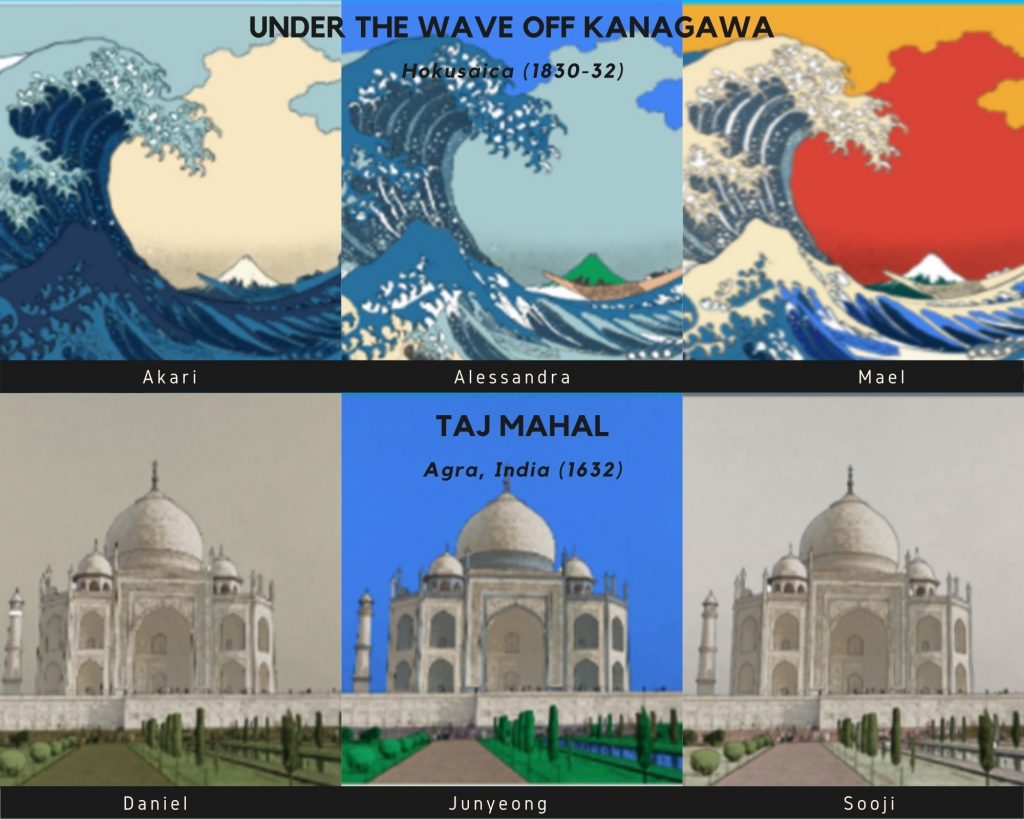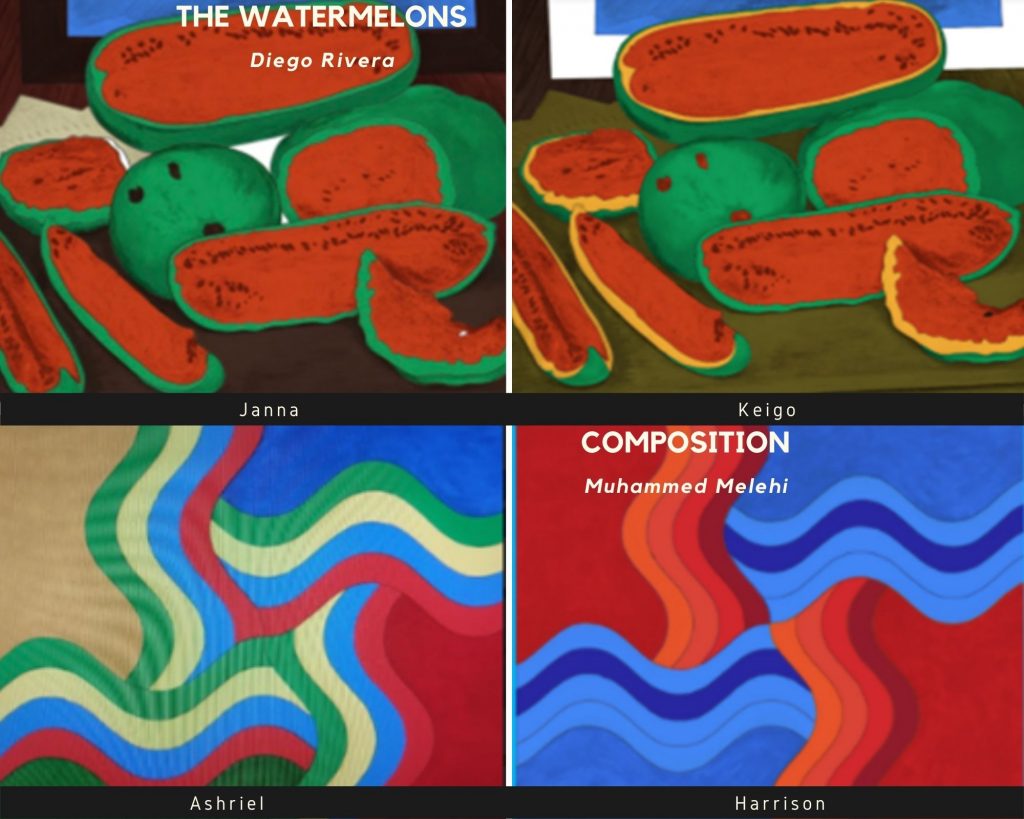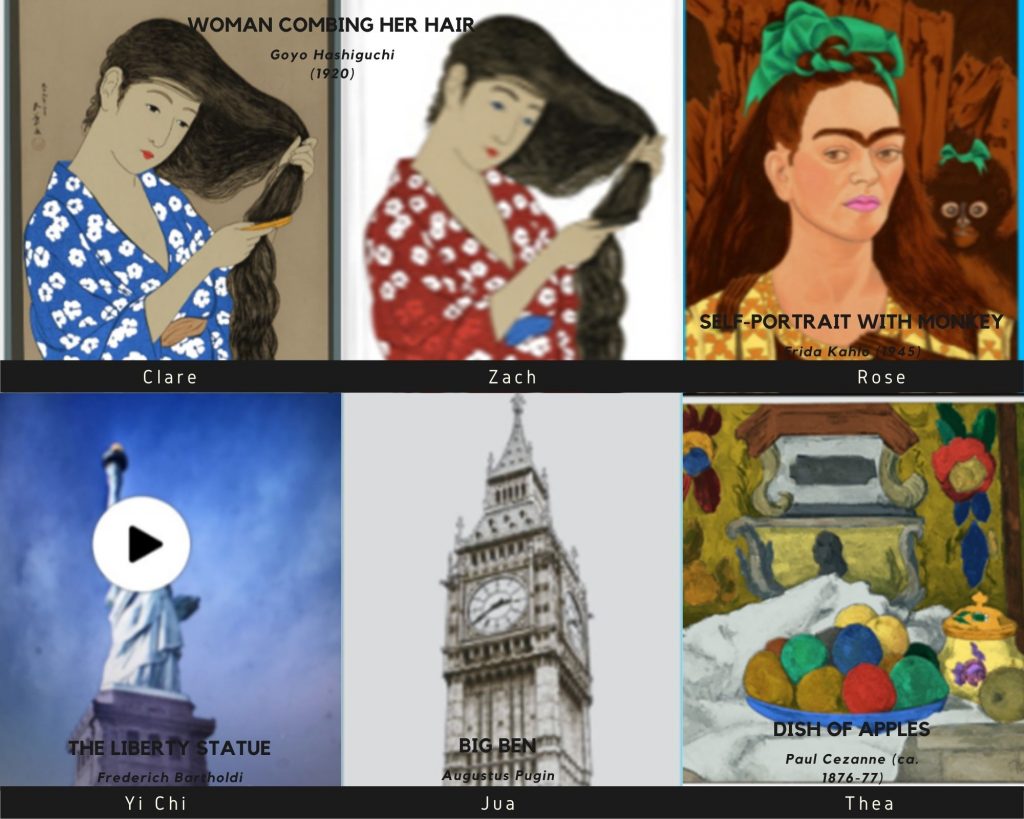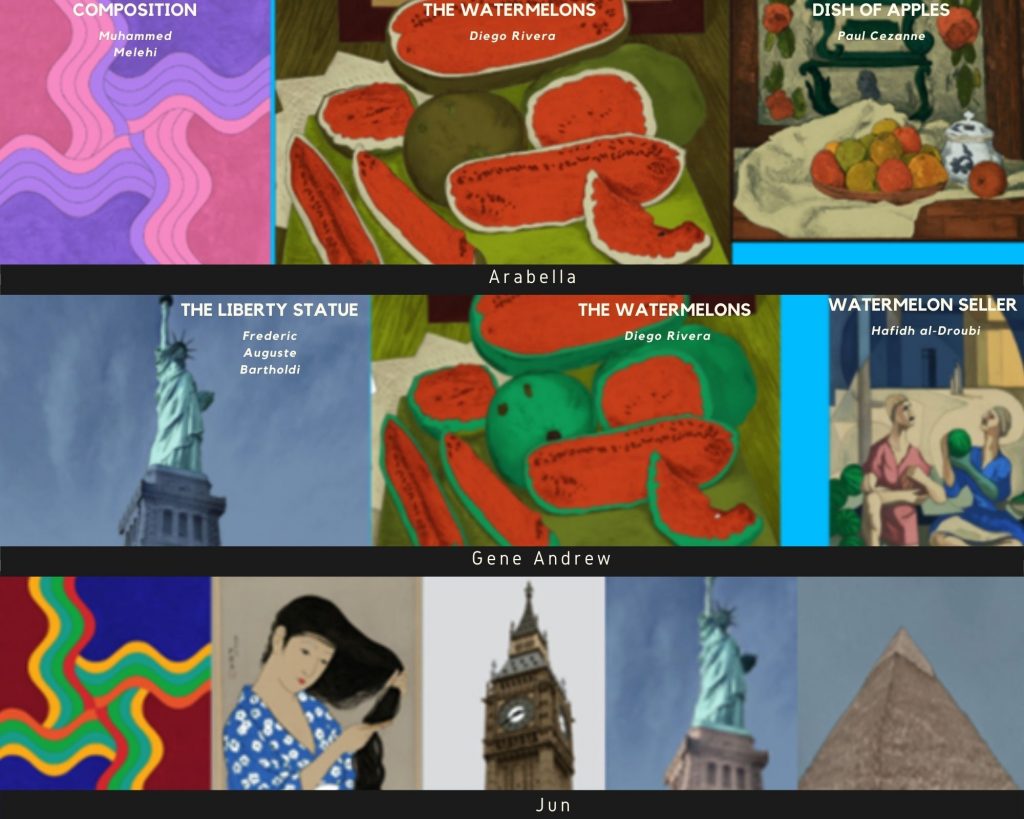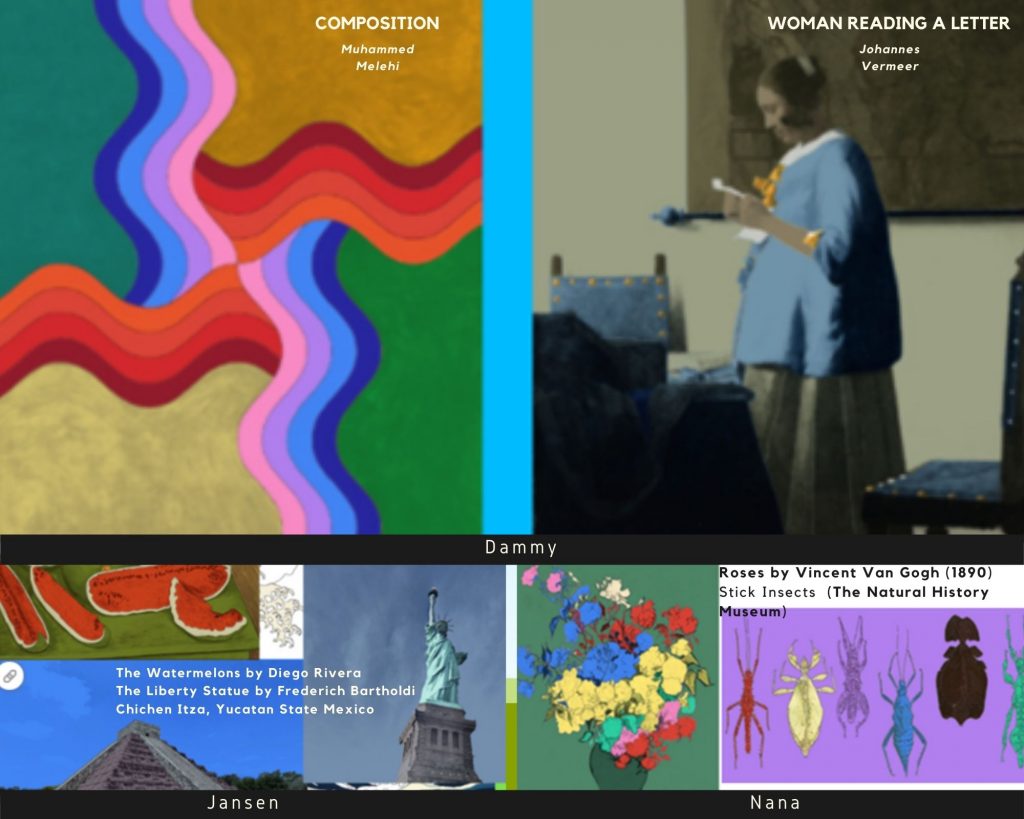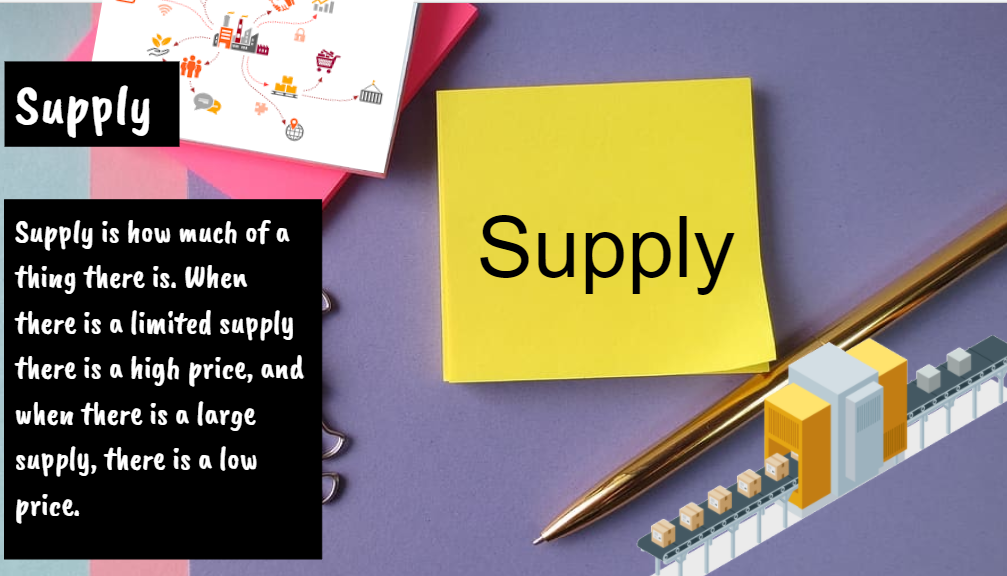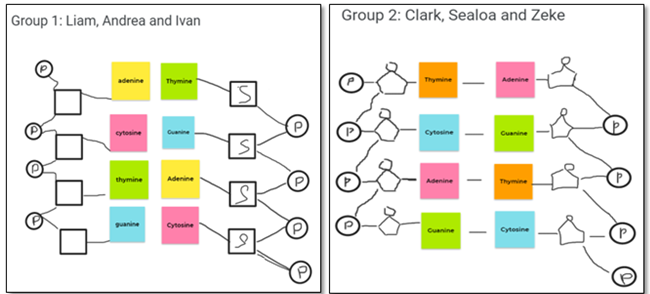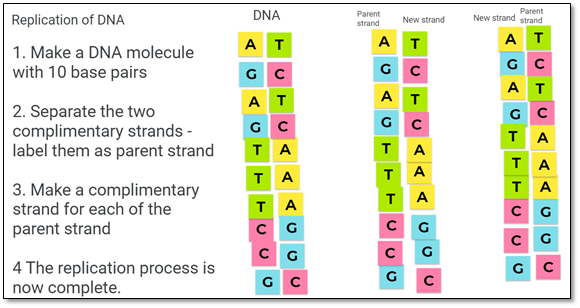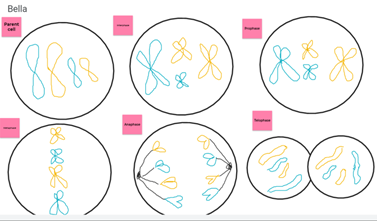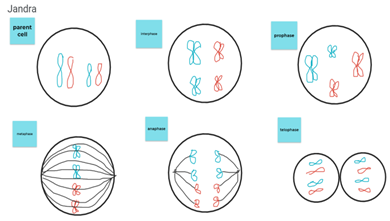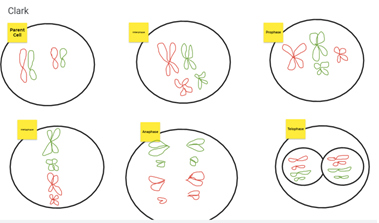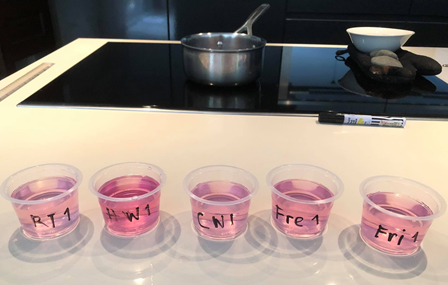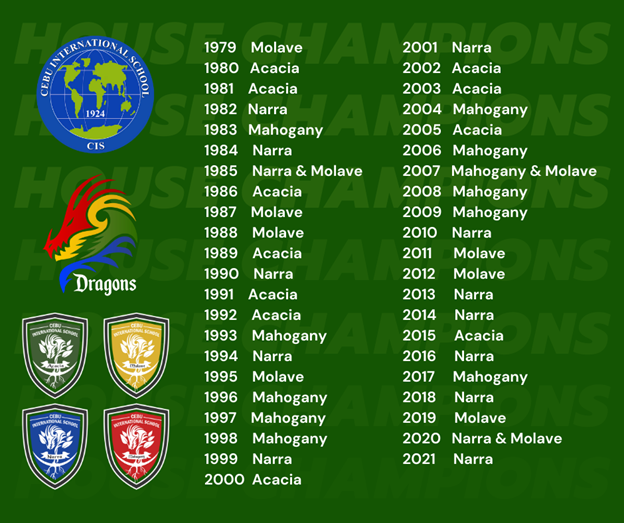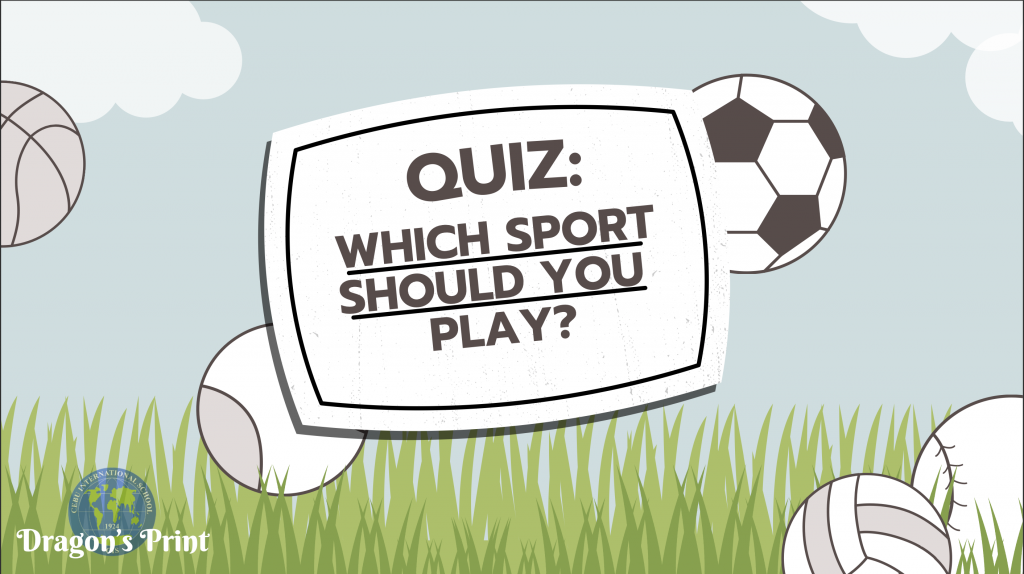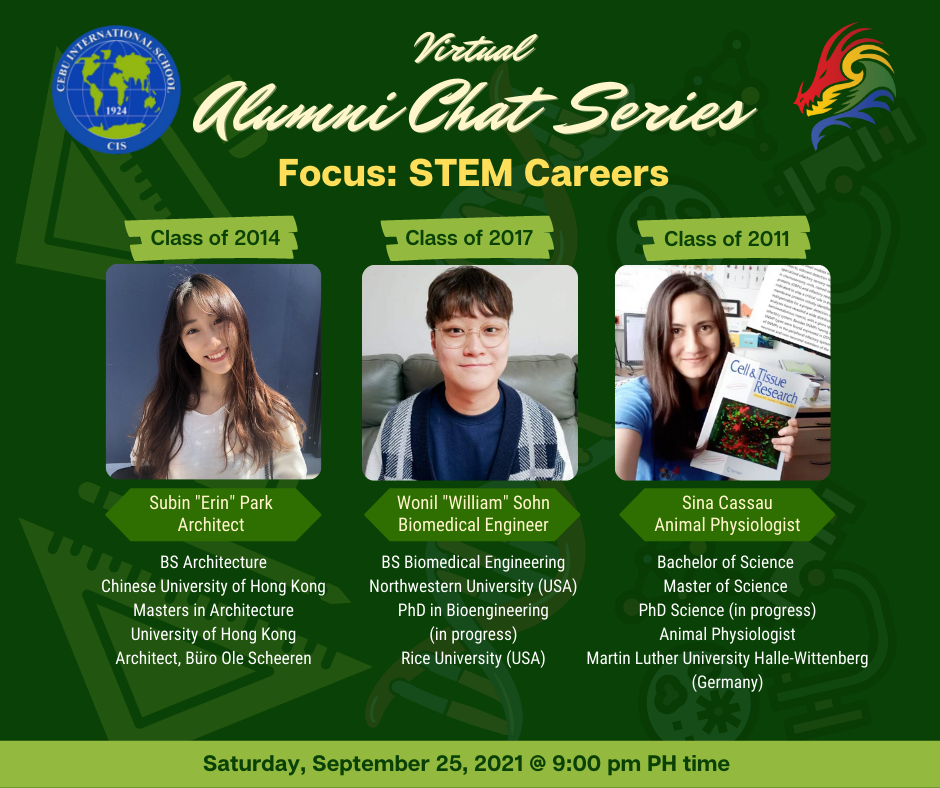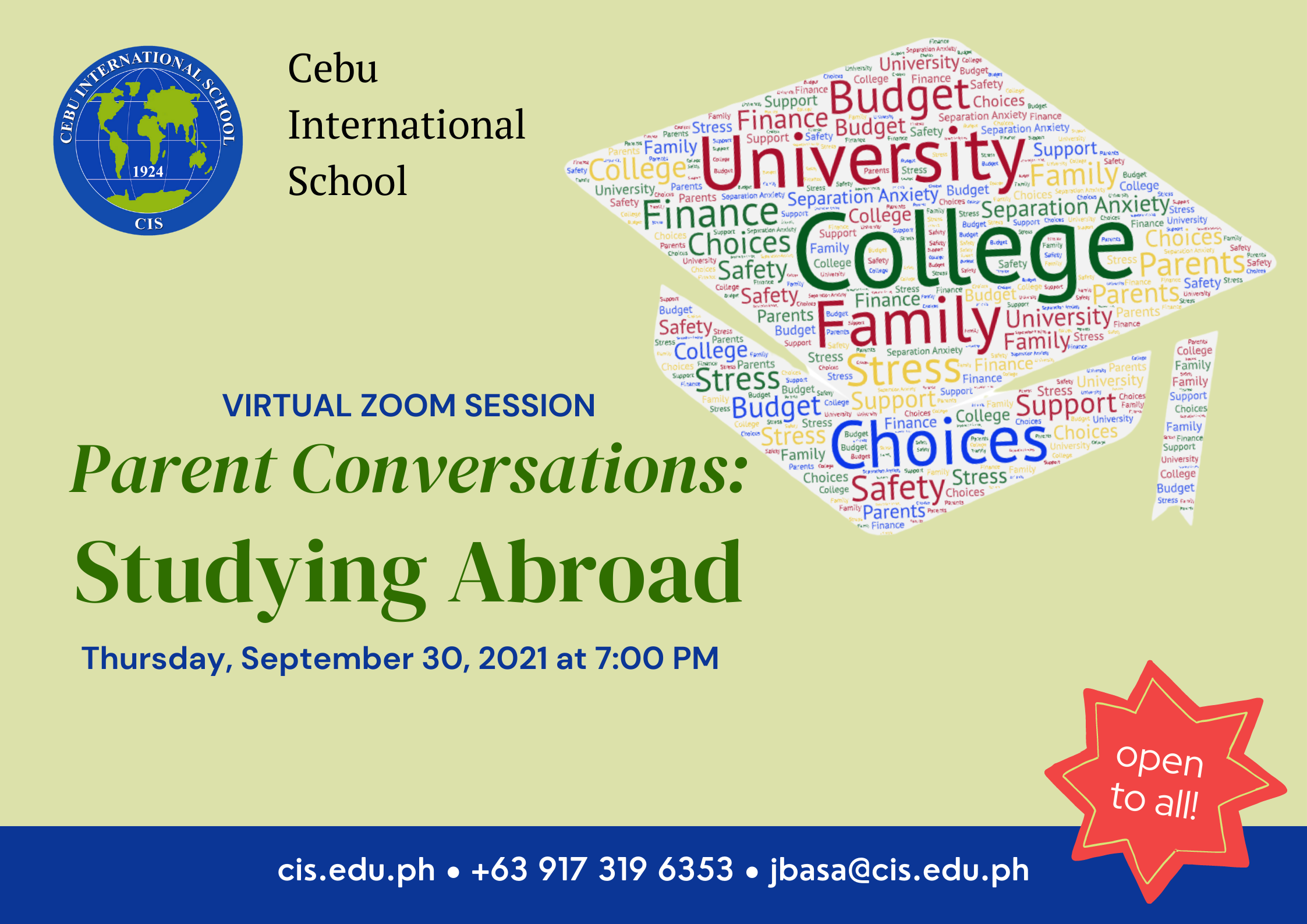
Admin Notes
by Dr. Gwyn Underwood, Superintendent
As we approach the end of the calendar year and continue to progress out of the pandemic here in Cebu, many of our community members are wondering if we will get back onto campus after Christmas. I will send out more details in an Info Brief, but for now, I can only say that while it is looking promising that we will be allowed to resume in-person classes sometime during the first half of 2022, we do not know if it will be January or sometime after that. Despite what you might hear on the grapevine, no school in the Philippines has been allowed back on campus yet, with the exception of limited face-to-face trials in a few schools. The authorities have not given a specific date for when we might be allowed back yet, so we are preparing for the possibility of a January return to campus after our December break, while also being prepared to wait a little longer if required. As soon as we know anything specific, rest assured we will inform you!
SEL skills help with academic success!
 As we near the end of our first semester, our teachers have started planning for end-of-semester reports to share with you how they are progressing with their learning objectives. As our students will be completing a variety of summative assessments to help with this in the coming weeks, it is a good time to review what skills they might use to help them prepare.
As we near the end of our first semester, our teachers have started planning for end-of-semester reports to share with you how they are progressing with their learning objectives. As our students will be completing a variety of summative assessments to help with this in the coming weeks, it is a good time to review what skills they might use to help them prepare.
Firstly, students at all levels at CIS are constantly given implicit and explicit opportunities to develop their Approaches to Learning (ATL) skills, which are skills that help them “learn how to learn”. It may help, then, to review each skill cluster to ensure these are always being considered. Refer to the poster to the right for a summary of these, and check out our ATL Skills page for more details (poster design and site credit to our Assistant Principal-MYP, Mr. Jonathan Denton).
 Secondly, I want to highlight some recent research by the Organization for Economic Cooperation and Development (OECD) that indicates Social Emotional Learning (SEL) skills also help with academic success! Andreas Schleicher, the director for education at OECD noted that some people see academic development and social-emotional development as opposing ends of the spectrum, and some may even think that if you focus too much on social-emotional skills, you might be taking time away from academic subjects. Actually, they are closely connected.
Secondly, I want to highlight some recent research by the Organization for Economic Cooperation and Development (OECD) that indicates Social Emotional Learning (SEL) skills also help with academic success! Andreas Schleicher, the director for education at OECD noted that some people see academic development and social-emotional development as opposing ends of the spectrum, and some may even think that if you focus too much on social-emotional skills, you might be taking time away from academic subjects. Actually, they are closely connected.
The study analyzed the way social-emotional skills affected students’ performance in a wide array of educational systems and learning contexts, over five key areas:
- Task performance (such as persistence, and self-control)
- Emotional regulation (such as optimism and reaction to stress)
- Collaboration (like empathy and trust)
- Open-mindedness (such as tolerance, curiosity, and creativity)
- Engagement with others (such as assertiveness and sociability).
 The results show that the development of social skills can boost students’ performance in core academic subjects. And more specifically, curiosity and persistence were found to be the strongest predictors of academic success in both math and reading, although other skills also played important roles.
The results show that the development of social skills can boost students’ performance in core academic subjects. And more specifically, curiosity and persistence were found to be the strongest predictors of academic success in both math and reading, although other skills also played important roles.
These findings are not so surprising to some, as demonstrated by educational thought-leaders Andy Hargreaves and Dennis Shirley who also stated “Intellectually demanding learning & student well-being should go together” in their recent book Wellbeing in Schools (2021). It is helpful to have this confirmed in a study, however, as it gives us the confidence to renew our focus on valuing our SEL initiatives, not only for the social-emotional learning gains, but also as contributing factors to our students’ academic development. What can you do over the coming long weekend to nurture your curiosity and persistence? Enjoy your long weekend!
References:
- Beyond Academic Learning: First Results from the Survey of Social and Emotional Skills – OECD 2021
- SEL Skills That May Matter Most for Academic Success – Sarah Sparks in Education Week, Oct. 29, 2021
Dates for your attention
- Monday, November 29: School holiday
- Tuesday, November 30: Bonifacio Day (National Holiday)
- Friday, December 10: Last day of Semester 1 (Half day of school)
- Tuesday, January 4th: First day of Semester 2
Refer to our online School Calendar a complete listing of school events
Grade 4
by Sten Coppin, Grade 4 Teacher
Choose Your Own Adventure Story
Our new UOI unit in Grades 4 and 5 is Where We Are in Place and Time, and in the next few weeks we will be learning all about ancient civilizations, how they grew and ended, and how they still affect our lives today. For our current Grade 4 writing unit, we are creating historical fiction. We are focusing on creating interesting beginnings that hook the reader, choosing great words for showing not telling, and ensuring our writing has structure that makes it easy to understand. For this week’s Newsflash, we decided to combine the 2 units and create a Choose Your Own Adventure story set in Ancient Egypt, using some of our knowledge learned in class as well as with specialist teachers. We hope you enjoy it!
Language Acquisition Classes
MYP English
by Ms. Lana Lautamus, MYP English Teacher
Unit Two in English Language Acquisition Class
Since returning to school this quarter, we have been studying the concepts connected to “Friends Around The World”: global interactions, identities and relationships and the roles of one’s audience and the function of communication when interacting with others.

We have been looking at the hidden meanings of words, body language, cultural behaviours/mannerisms and idioms. Exploring what school experiences are like for others around the world and how school is – or will be – different in the future with COVID-safety measures in place has also been a focus of our discussions and lessons.
We have been conversing with our virtual penpals from Hanoi, Vietnam each week to continue growing our communication skills. We have been getting to know them personally and also asking questions to help us with our inquiry (What is school life like in other countries? What sayings have hidden meanings? How can you understand hidden meanings from words and phrases? Are all students the same around the world?).
To express our understanding of this unit, we will be choosing to inquire into a specific schooling experience from another country and then hypothesizing what it would be like for a student to join us at CIS and stay in the boarding house. What sort of cultural differences would the new student need to be aware of? Orally sharing these presentations with each other will allow for a summative assessment connected to Criterion C (Speaking) on December 3, 2021.
———————————————————–
In Grade 8 & Grade 9, we are in the final stages of our unit “Teen Life”. Our statement of inquiry, “Teens around the world have different goals and face different challenges.” has been intriguing, as being thirteen – fifteen years old is a time of many different challenges…. And then we have COVID-complications in the mix as well!
Our inquiry questions were composed of the following:
What are some of the goals you have? What are some of your challenges?
How does one’s life alter after one sets goals and challenges? What are good goals?
Where do we get our goals from? What level of challenge is too much?
Identity, point of view and empathy were the highlighted conceptual understandings connected to our unit. We’ve also practiced being open-minded thinkers, with our critical and reflective thinking for various learning engagements, conversations and formative tasks during the past 7 weeks.
We will be practicing our oral communication skills (Criterion C – Speaking) on Friday December 3 when students will orally share their presentations about a teen who faced challenges but overcame them due to his/her goals they had set. Famous examples such as Boyan Slat, William Kamkwamba, Malala Yousafzai or Greta Thungberg (to name a couple) will be the inspiration for our own individual inquiries.
MYP Mandarin
by Elaine Jin, MYP Mandarin Teacher
Grade 6 & 7
Grades 6 and 7 Students have learned how to describe one of their school days’ schedules and have presented a video of what they did during a school day. They are able to use different video editing tools to combine the video clips, and add English and Mandarin subtitles. The students have enjoyed watching each other’s videos. In addition to this, the students have presented their Day A to Day D’s class schedule including their relevant subject teacher’s name. With the comparison of their own schedule and some sample schedules from a Chinese school, they are able to discuss the similarities and differences.

Grade 8 & 9
Grades 8 and 9 students have learned how to describe time and daily routines with different activities. They have discussed and researched what a healthy routine is like and what an unhealthy routine is like. They have presented to the class what a healthy daily routine of themselves looked like and what an unhealthy routine of an imaginary person looked like. Furthermore, they have worked in groups on researching and presenting methods of how to keep a healthy and balanced routine and lifestyle.
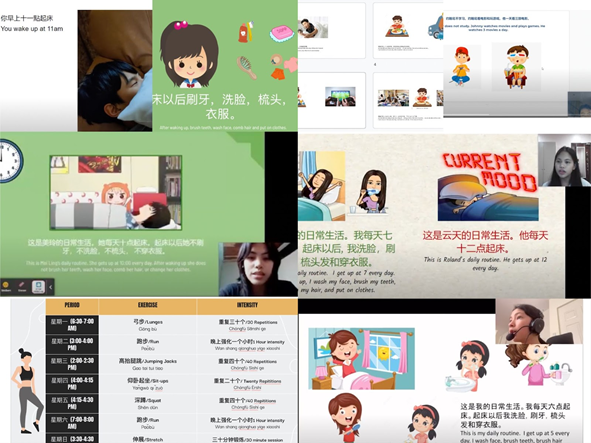
Grade 10
Grade 10 students have worked on different topics about immigrants. They have discussed the benefits and challenges of migrating to different countries and areas, such as Singapore, China, Hong Kong, etc. With the connection of their own experiences, students have shared their challenges in studying abroad by interviewing their classmates.
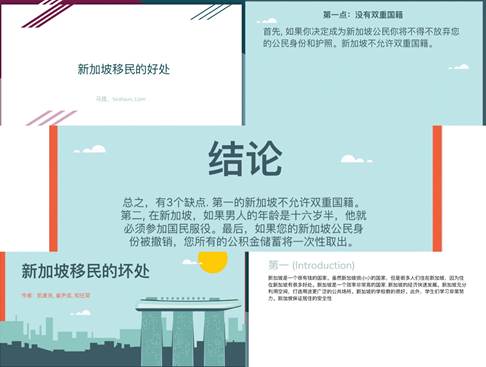
MYP Spanish
by Mr. Antonio Melgar, MYP Teacher
Grade 6/7
Grades 6 and 7 students learned how to mention the subjects and co-curricular activities they do in school, who teaches each of them, on what schedule, as well as the people that work on a campus. They had fun designing their schedule in Spanish and then narrating how a normal school day is for them.
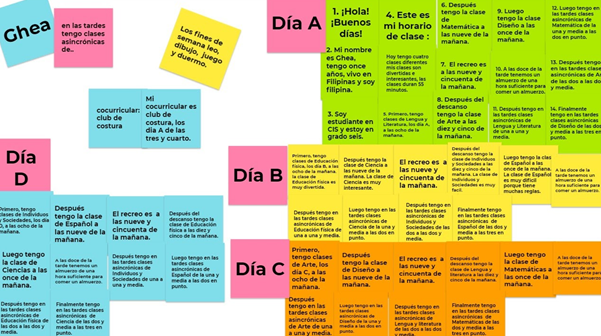
Grade 10
This term we focused on migrants’ rights and we discovered that somehow we all are migrants or the descendants of migrants and that we share a common place called earth. We discussed human rights and empathy, as well as learning how to arrange a debate and the vocabulary required for it. Students also learned how to analyze complex articles written in Spanish by answering IB type questions.

Mandarin Ab Initio
by Ms. Jinua Zou, Mandarin Ab Initio Teacher
These past weeks Grade 11 students have been learning vocabulary about contemporary and traditional Chinese clothes – Cheongsam (长衫)/ Qipao (旗袍). They watched videos to compare the different school uniforms from different countries and designed two sets of school uniforms during the weekly summary study project.

Grade 12 students have successfully started their review for the IB exams. Recently they are working on the themes of Identity and Experience with class discussion and IB-style assessment practice. During the discussion of Eats and Drinks, they have explored the topic of dining culture, traditional foods as well as how to maintain a healthy lifestyle as a Grade 12 student.
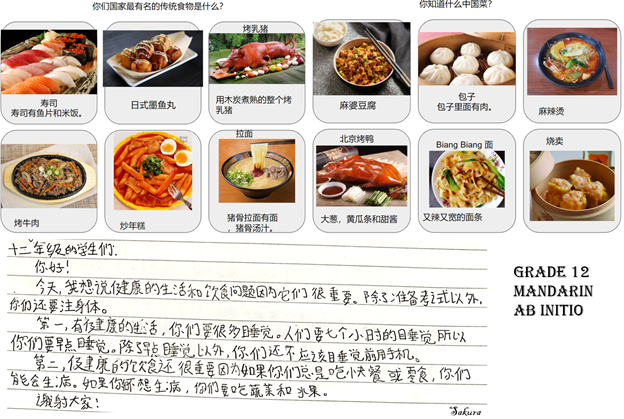
Spanish Ab Initio
by Ms. Gloria Rodriguez, Spanish Ab Initio Teacher
These past weeks Grade 11 students have been practicing ways in which to describe daily routines and talking about sports and hobbies. Students created presentations to talk about habits and sports they practice daily.

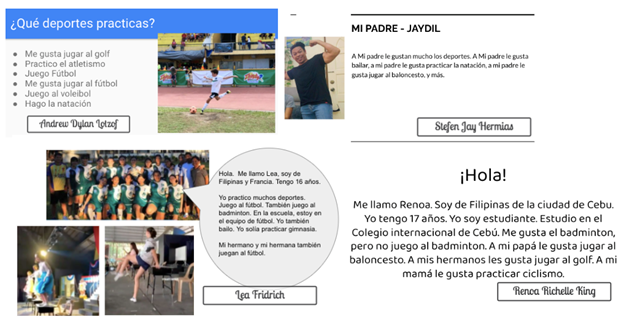
These past weeks Grade 12 students have been successfully practicing ways to describe and contrast events in the past and the present. Students created presentations to talk about their daily routine, physical appearance, and likes and dislikes from childhood to the present. Grade 12 students have also been practicing for their Spanish Internal assessment by describing images and answering general questions related to the five IB Themes.


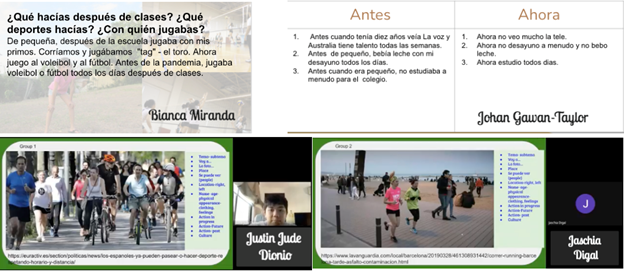
CAS and Service Learning
by Mr. Ace Pierra, IB CAS/ Service Learning Coordinator
Last Saturday, November 20, 2021, the Grade 11 students leading the Drop Your Share Project and the CIS Sewpports (Akeisha M., Jhirlymarie T., Gabbie C., Stephanie V., Rhett N T., Isabelle F., Selly P., Mikaela F., Lea F., and Chewon Y.) attended The Sustainability Summit hosted by International School Manila! This year’s theme was “No Change Too Small.”
The summit started off with a talk from the keynote speaker who was a representative for the MADtravel organization. He talked about sustainability, forest, farmers, indigenous, and the vision to live in a poverty-free world.
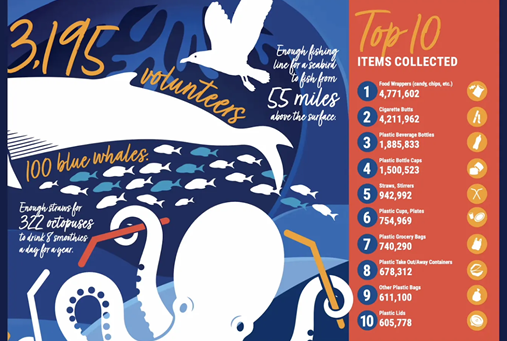 Delegates were also given the opportunity to join their designated workshops. This year, there were three workshops: Future Fresh, Renovate to Educate, and Pure Oceans.
Delegates were also given the opportunity to join their designated workshops. This year, there were three workshops: Future Fresh, Renovate to Educate, and Pure Oceans.
The speaker for the Future Fresh workshop was one of the owners himself. He gave the delegates some insight into how Future Fresh does their sustainable and innovative vertical farming. It was very interesting to see how innovation made farming more efficient. The student delegates were then divided into breakout rooms, and they were tasked to think about possible solutions and sustainable practices that a business and its consumers can practice every day. Hearing the other delegates’ ideas helped the students realize that there are many ways everyone can practice sustainability, whether you are a business owner or a consumer.
In another workshop led by the founder of Pure Oceans, delegates learned about the diversion of plastic waste in oceans and shores. The breakout room conversations surely engaged the delegates as they shared ideas on ways to reduce plastic consumption and waste. In addition, they followed a design thinking strategy that takes into account solutions to use low-impact materials, reduce waste, and promote recycling for the long term. Brainstorming with groups of delegates was indeed an eye-opener, and a great way to take small steps towards sustainability.
The third workshop was led by a director of the project, Renovate to Educate. Throughout the session, delegates were introduced to the challenges of education that the Philippines currently faces and how this greatly affects learning. They talked about how CoVid-19 has affected students’ ability to learn. As a solution, they stressed the importance of facilitating renovation projects for public schools and creating a safe environment for the students. Breakout sessions were filled with discussions about ways to improve the quality of education in the country, as the delegates tackled questions regarding challenging issues like what hybrid learning would look like after CoVid-19.
There was also a panel discussion and Q&A session, wherein student leaders of One-Million Lights, Eco-School, and Girls Will Code spoke to us about their key experiences in their journey of advocacy. They highlighted their inspirations for launching a project and how their community of changemakers has grown over time. Most importantly, they have shown us that it is never too late to take initiative and get involved to make a good change that the world needs.
Finally, the summit closed with a speaker from UNILEVER, who presented their initiatives that contribute to their sustainable value chain. With eco-friendliness in mind, they have partnered with businesses and NGOs to bring the vision of a green future to life.
The Sustainability Summit has definitely enhanced our knowledge of sustainable practices. The panelists have inspired us and given us ideas on how we can run our own projects sustainably! – Jia and Akeisha G11
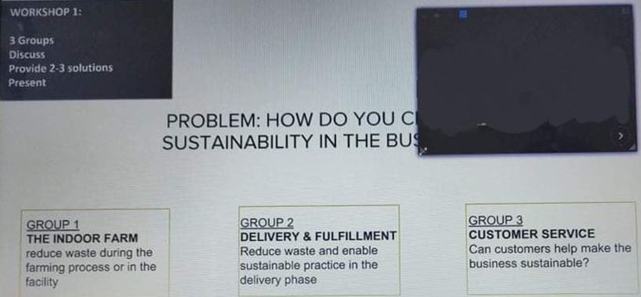
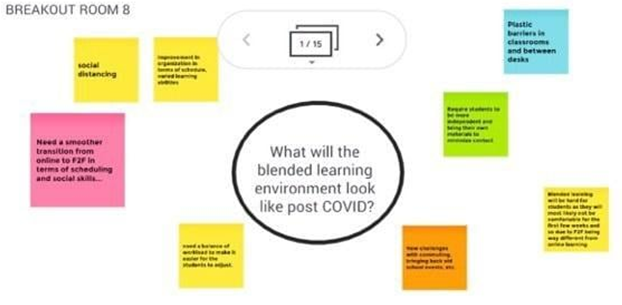
Drop Your Share: Our First Step!
“No act of kindness, no matter how small, is ever wasted.” – Aesop
Since the initial launch of the Grade 11’s student-led project Drop Your Share in October, 2021, the DYS team has received a generous amount of overseas donations through large balikbayan boxes. We would like to hereby thank everyone who have supported our cause and continue to make efforts in donating items needed by our partner CIS communities! To share exciting updates of our project, last November 18, 2021, the Drop Your Share team made our first donations turnover at sea. The exchange, led by our project supervisor Mr. Arnulfo (Ace) Pierra, had to be made in the middle of the sea due to the low tide and covid restrictions.

Here are the details about our very first Drop Your Share turnover update:
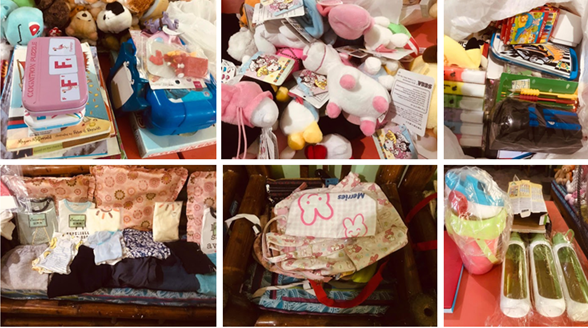
Our first box of in-kind donations was given to families of Cuaming Elementary School, located on the island of Bohol. It contained generous amounts of stuffed toys, clothes, books, bags, water jugs, and school supplies, that the DYS team collected from the accumulated acts of kindness from the CIS community.
This feat of success wouldn’t have been possible without the generosity of the people who donated all of these supplies in support of our student-led cause. We are grateful for the overwhelming support in keeping this service-learning project in motion, and for being a direct contributor to the positive social impact needed by our community. This marks as the first step our team, under the leadership and guidance of the school’s CAS principles, has taken in brightening the lives of fellow families and students from our partner-community in Bohol.
Drop Your Share is a project led by students with a dream. There are 5 boxes currently placed in the CIS campus lobby, with each box containg a specific category for the donations (Box 1 – hygiene-related items; Box 2 – educational materials; Box 3 – recreational toys; Box 4 – food and consumables; Box 5 – pre-loved clothes). We encourage the school community to donate new or spare items specified, in support of the multiple communities that have long been the beneficiaries of CIS.
If you want to be part of our cause, please don’t hesitate to contact us and Drop Your Share! Reach us through this email: dys21cis@gmail.com, or our social media pages in Facebook and Instagram @dropyourshare.
College/Careers Counselor Corner
by Ms. Jenny Basa, College/Careers Counselor
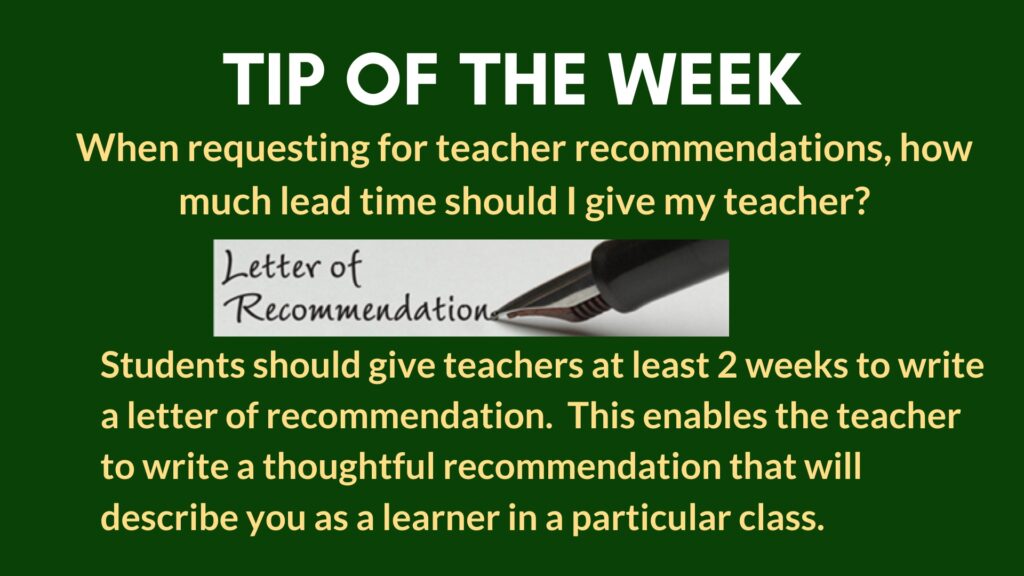
Upcoming Virtual Events and Fairs: (students & parents are welcome)
DATE
November 26
Friday
6:00PM
Link to register
EVENT
Waseda University Information Session

November 27
Saturday
11:00AM
Link to register
Career Development for International People in Japan & Business Communication
Speaker: Prof. Furukawa Tomoki
Kansai University
Target Audience: International students who wish to advance your career in Japan. Students who are living outside Japan and wishing to study in Japan.
University for the Creative Arts (UK)
Webinar Series

SAT Update
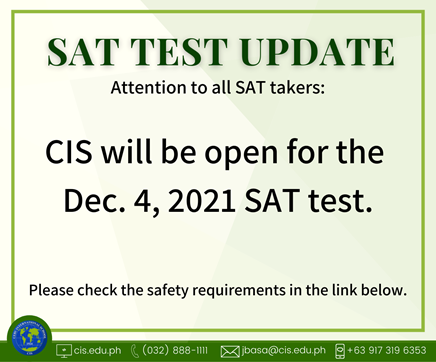 Please refer to this link for the safety requirements.
Please refer to this link for the safety requirements.
| 2021-2022 TEST DATES* | Registration Deadline |
| August 28, 2021 | CANCELLED |
| October 2, 2021 | CANCELLED |
| December 4, 2021 | November 4, 2021 |
| March 12, 2022 | February 11, 2022 |
| May 7, 2022 | May 5, 2022 |
| *The Optional SAT Essay and Subject Tests have been discontinued. | |
To register for the SAT, you may click on this link. If you need assistance or have any questions, please feel free to email Ms. Jenny Basa at jbasa@cis.edu.ph.
Dragon’s Print
It’s nearing the end of the year, the weather has already changed and the Christmas lights are out for everyone to see. Time to sing Christmas songs, watch classic Christmas movies, and wake up early on Christmas morning. Get in the holiday spirit with a few Instagram holiday-themed bingo templates. Visit the story of @cisdragons on Instagram to view them. Happy holidays!



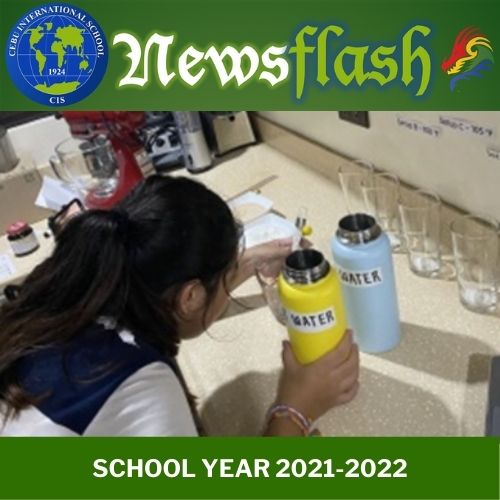
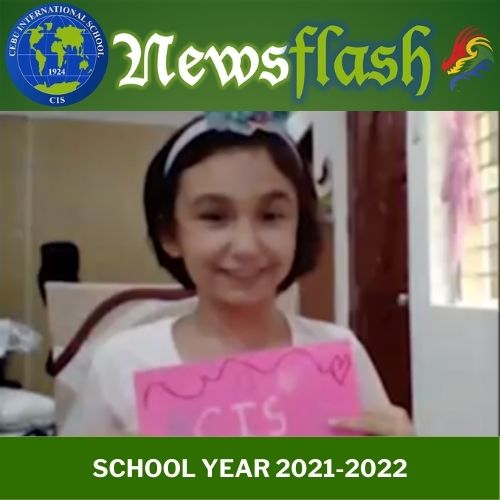
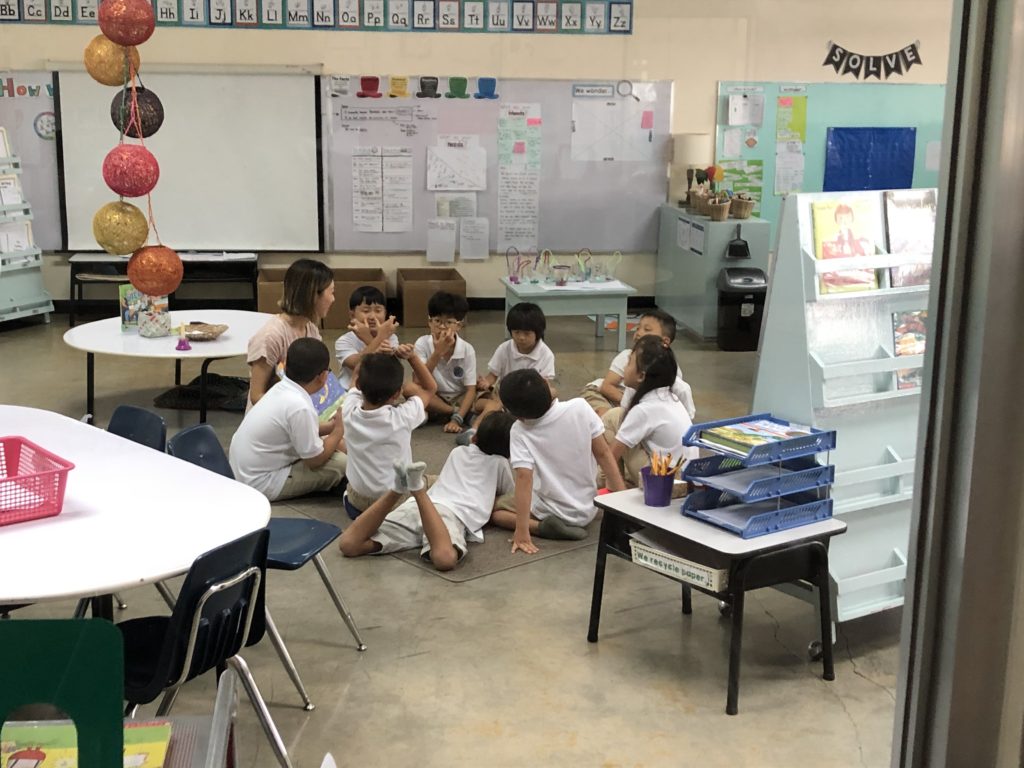
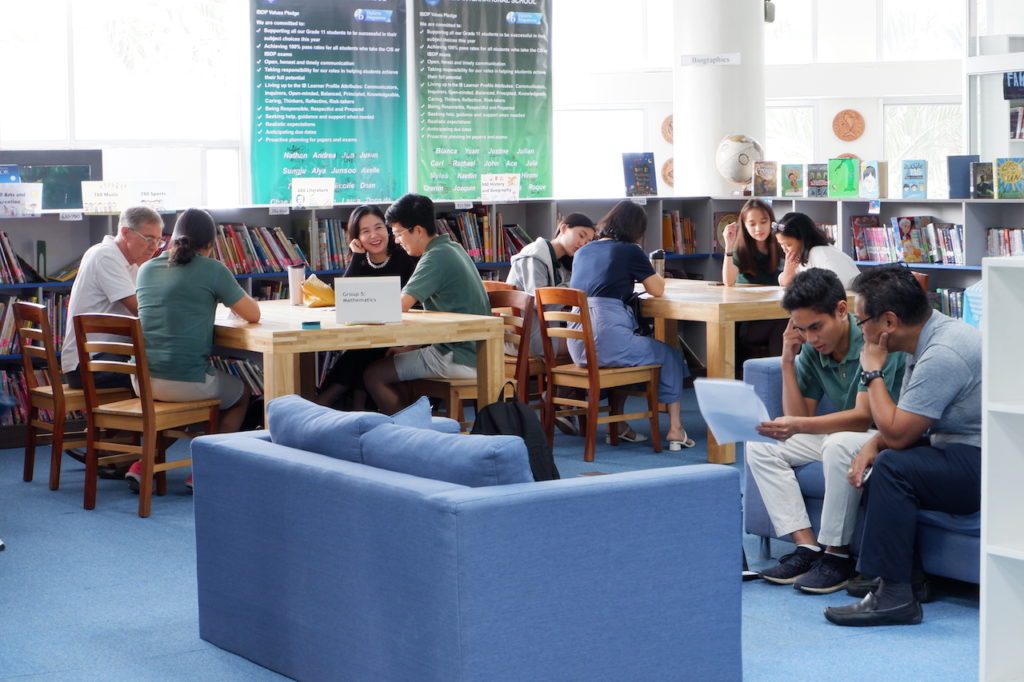 We will also be streamlining the way in which we are supporting our MYP students in the afternoon so that they have more sustained opportunities to engage in their asynchronous work, while still having access to teachers for support. This will be piloted over the next month and is a direct result of listening to student feedback. The afternoon blocks will remain but be amended slightly to consist of Class Study Time (led by the teacher) and Independent Study (with access to the teacher as required by students). Our teachers are also cognizant of the need for students to have downtime, especially during breaks, and meetings with MYP students will not be scheduled by teachers during these times.
We will also be streamlining the way in which we are supporting our MYP students in the afternoon so that they have more sustained opportunities to engage in their asynchronous work, while still having access to teachers for support. This will be piloted over the next month and is a direct result of listening to student feedback. The afternoon blocks will remain but be amended slightly to consist of Class Study Time (led by the teacher) and Independent Study (with access to the teacher as required by students). Our teachers are also cognizant of the need for students to have downtime, especially during breaks, and meetings with MYP students will not be scheduled by teachers during these times.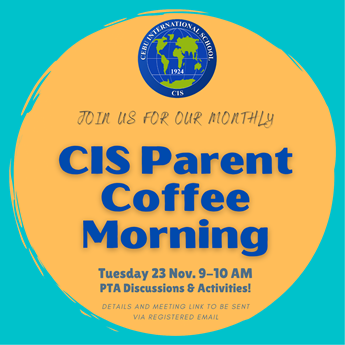
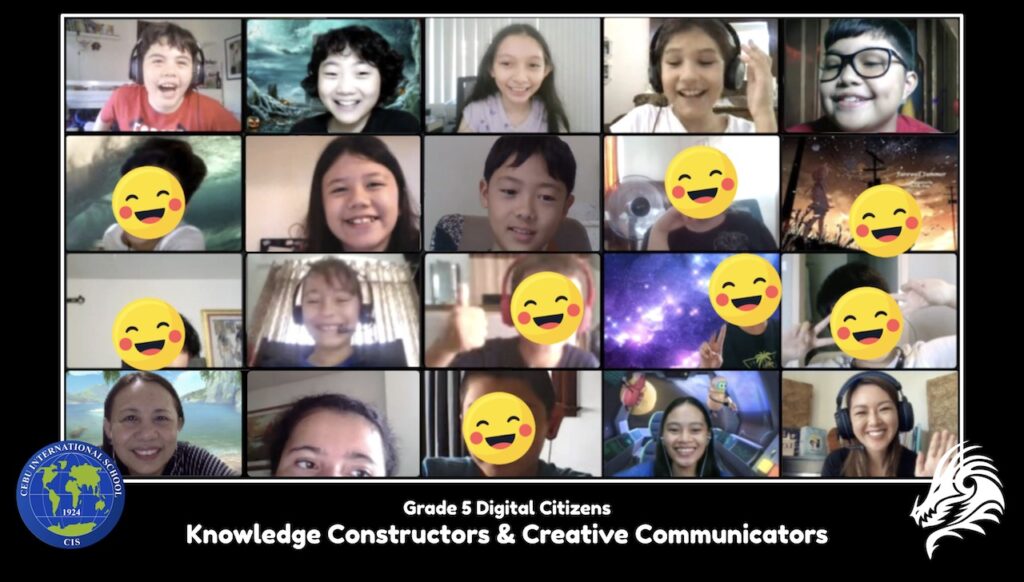
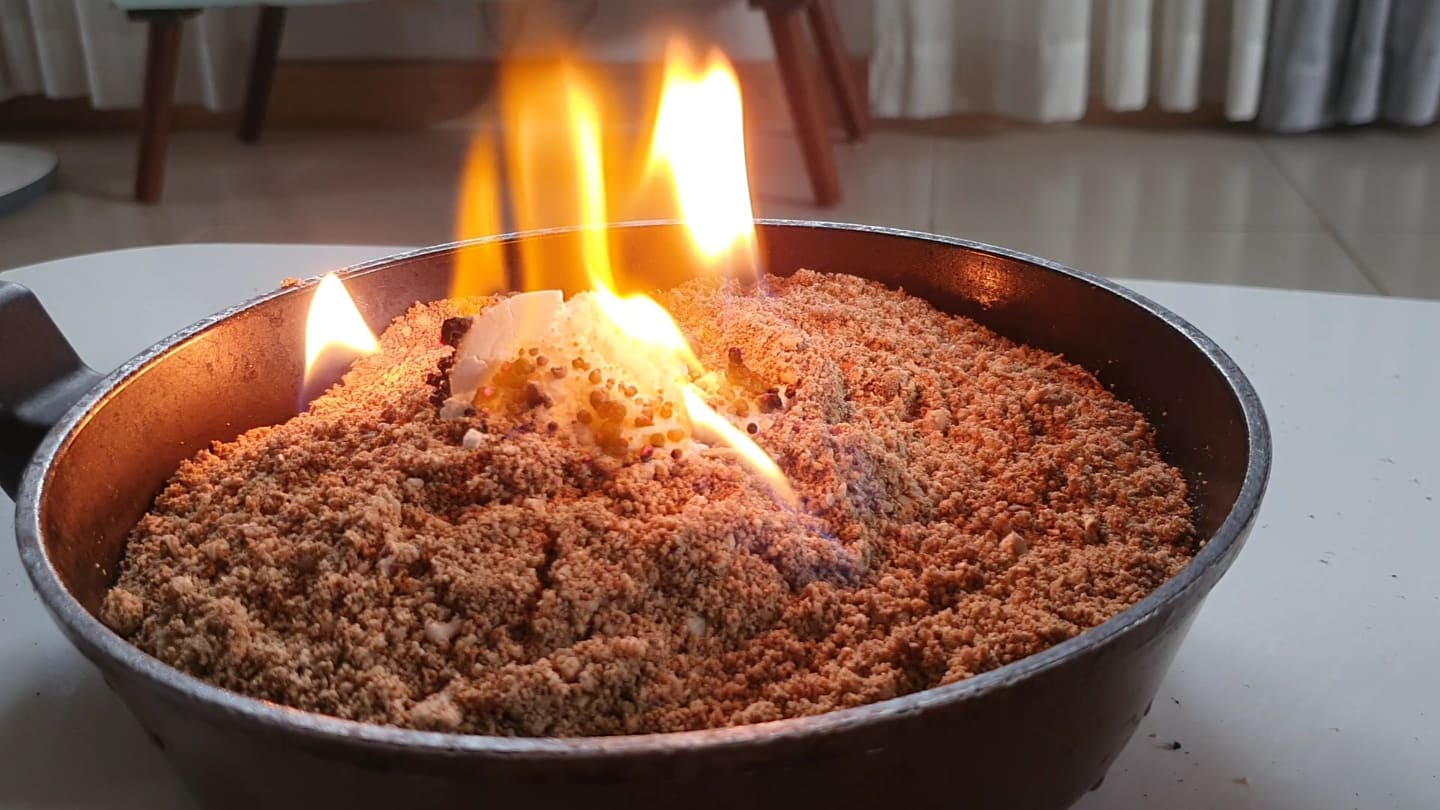
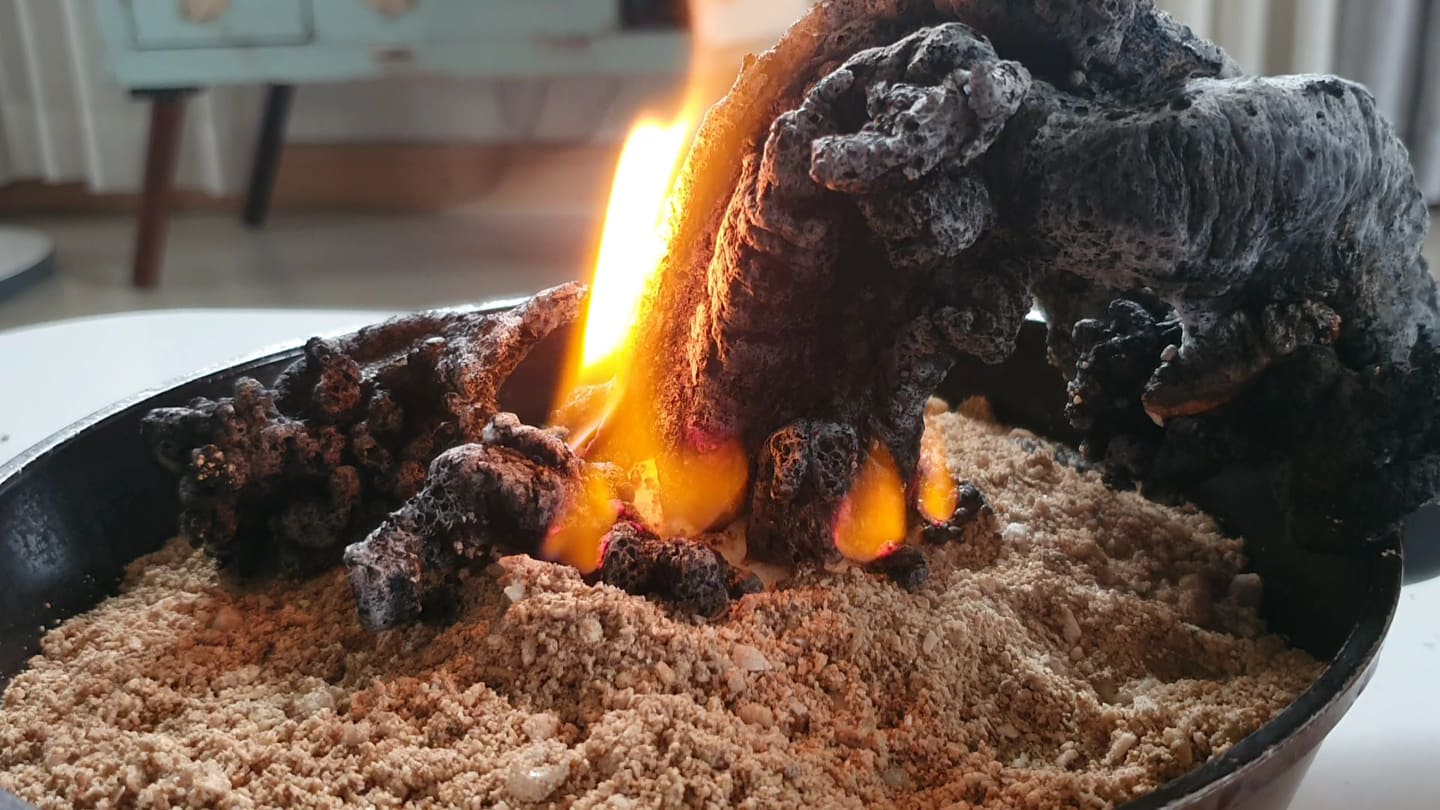
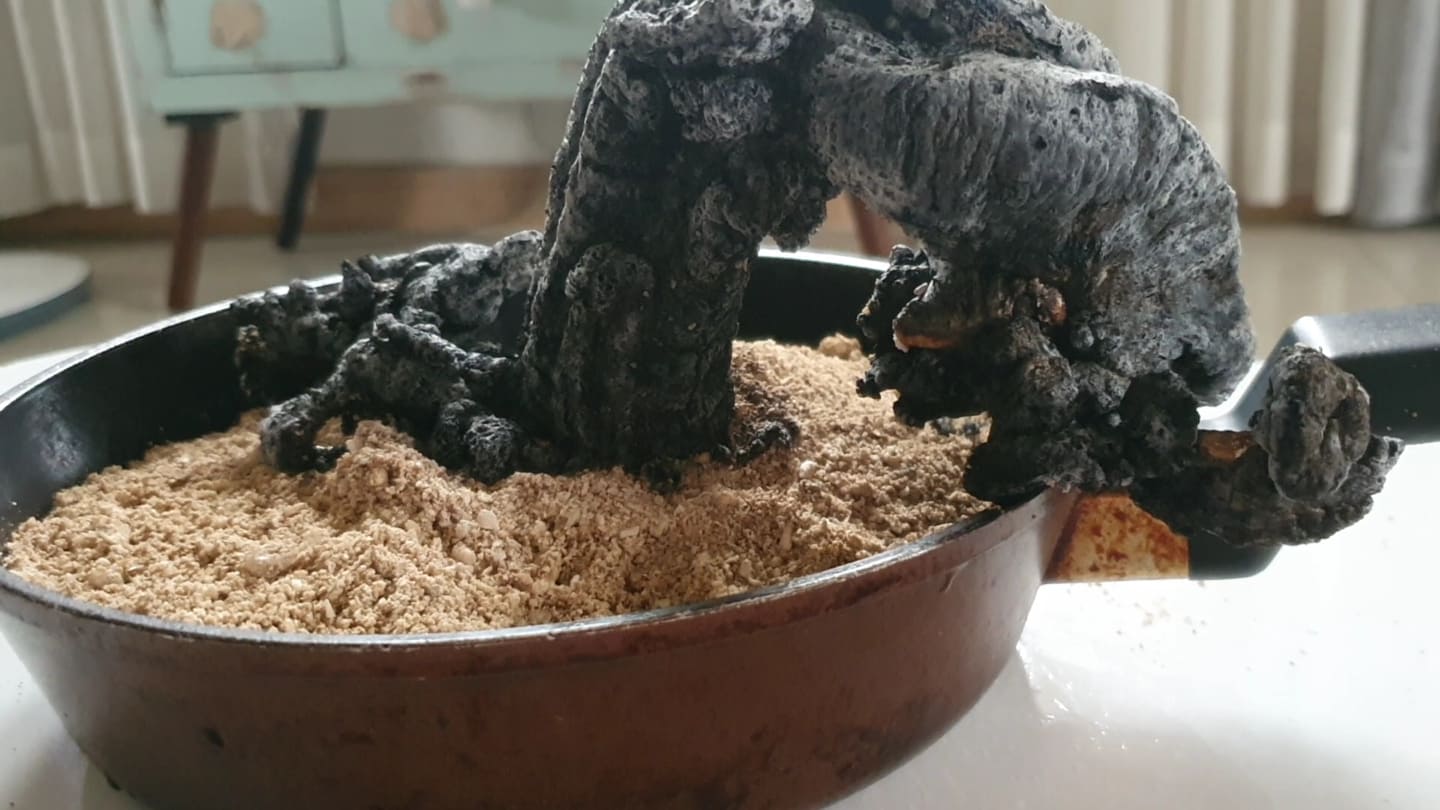
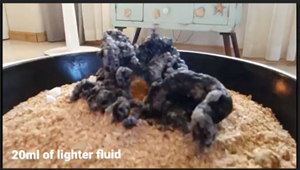
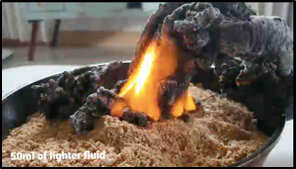
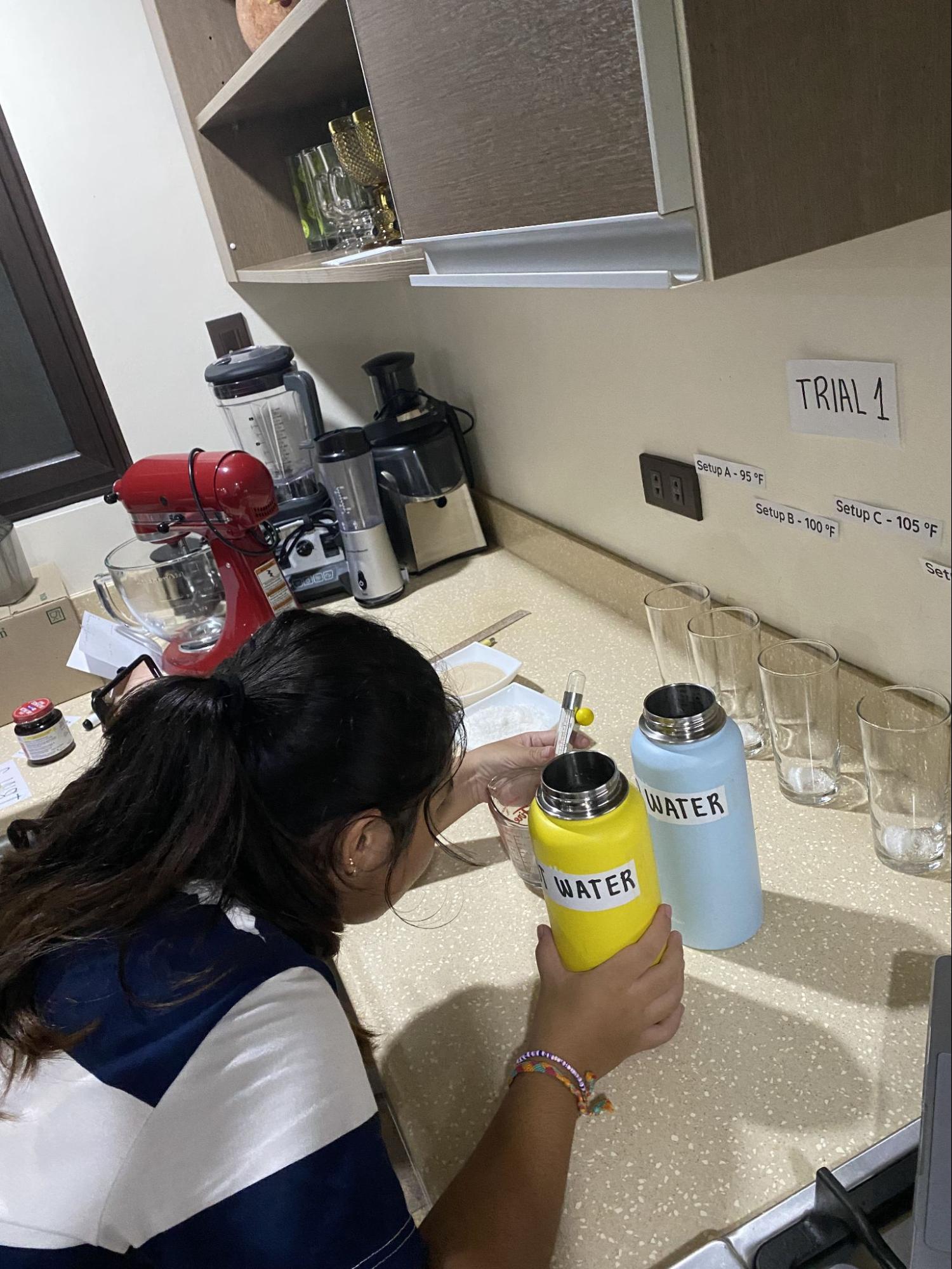
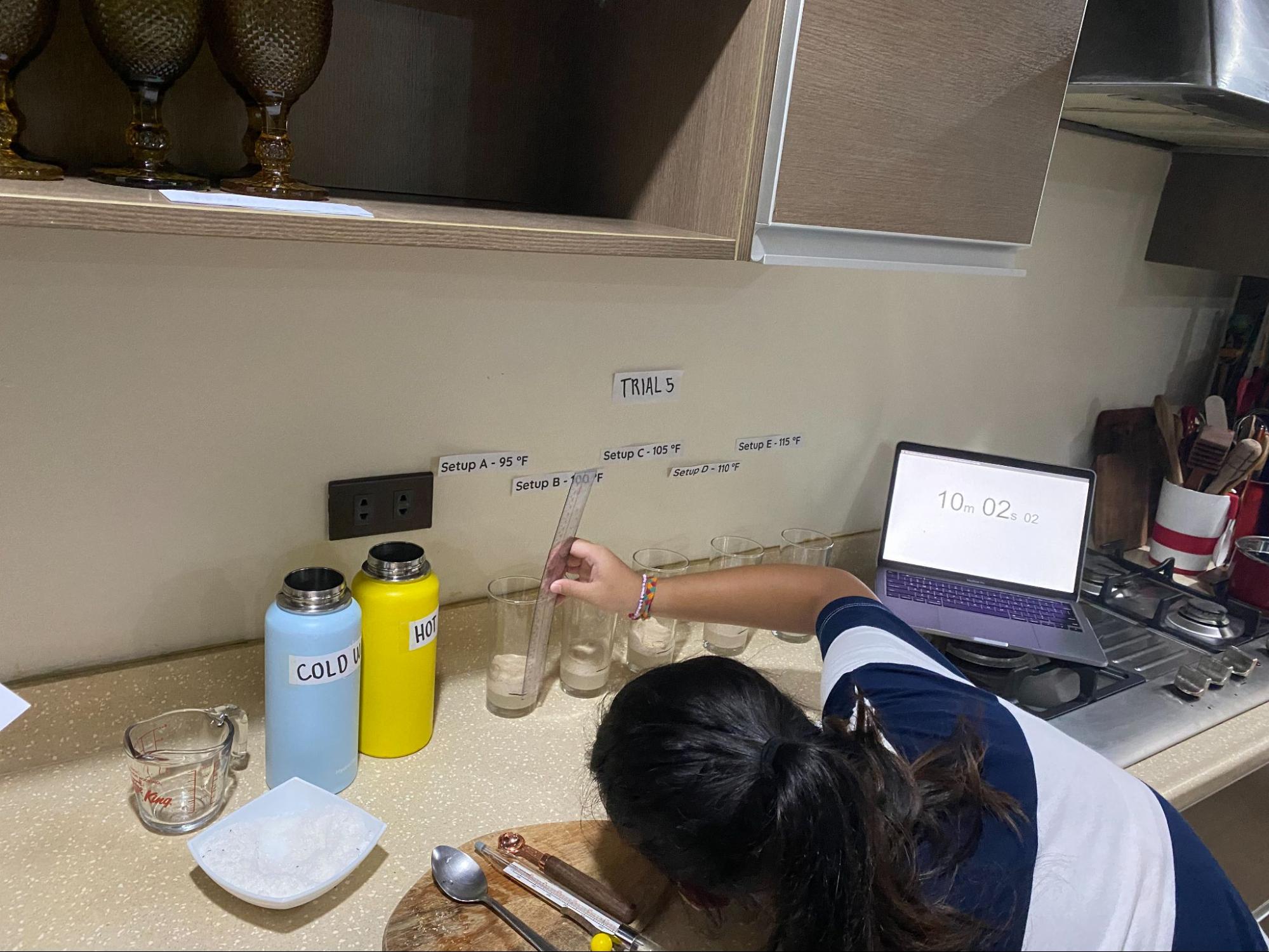
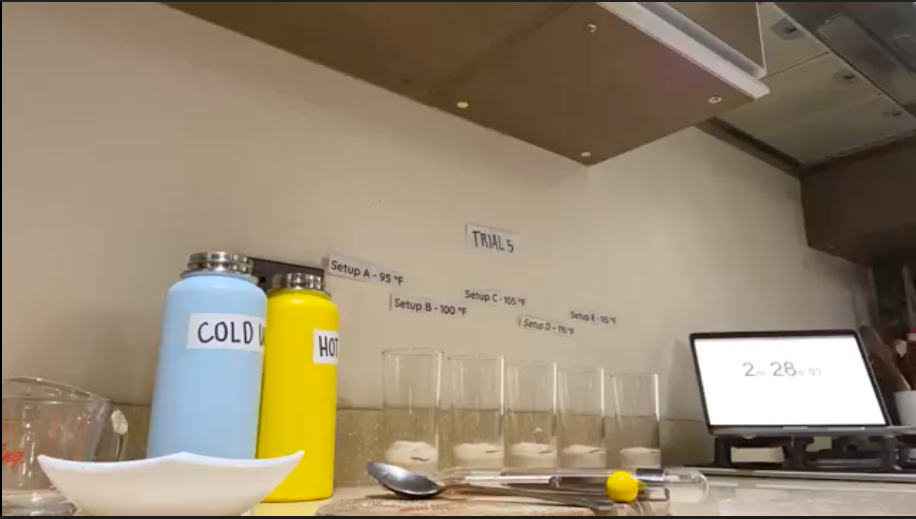


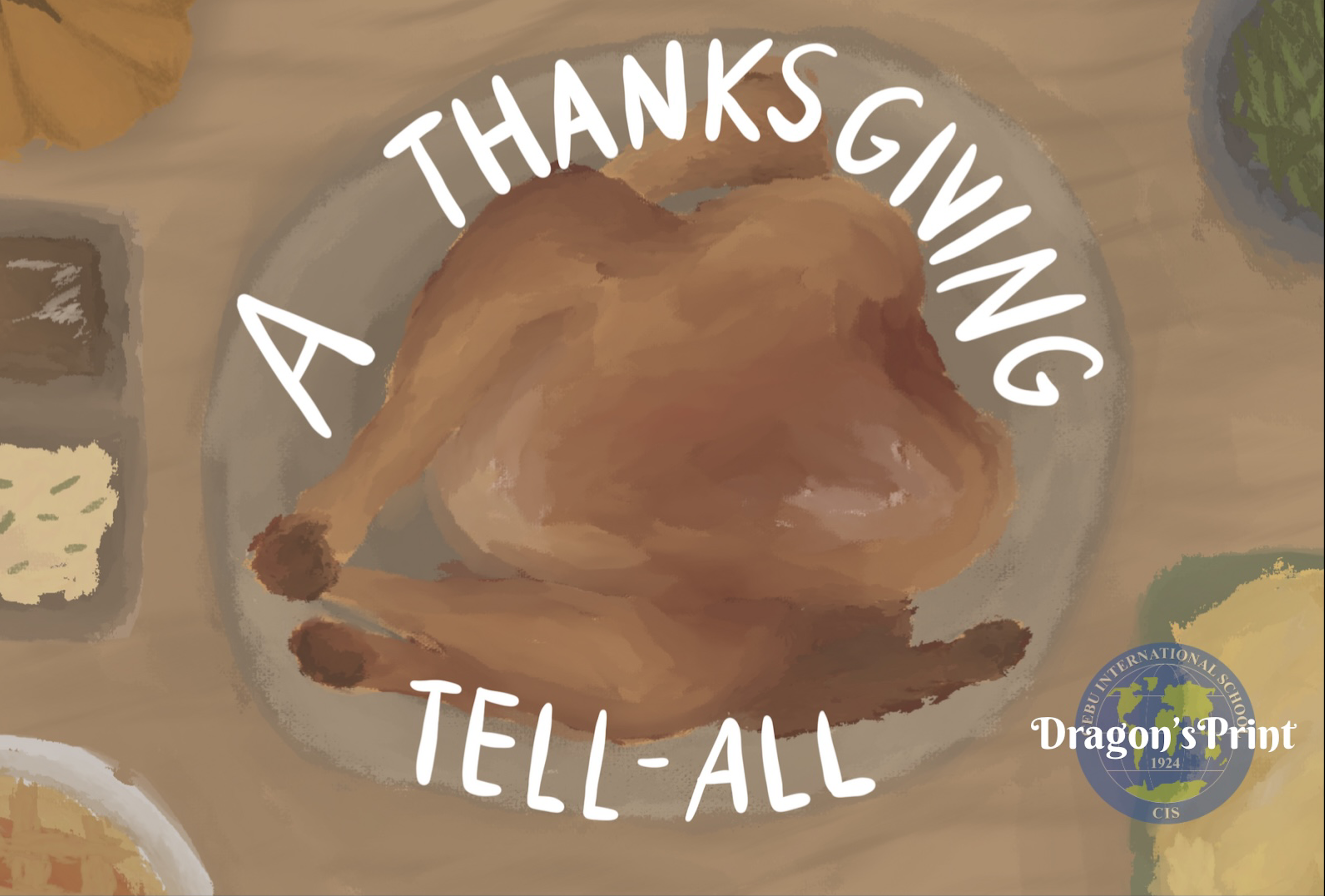


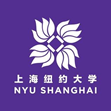



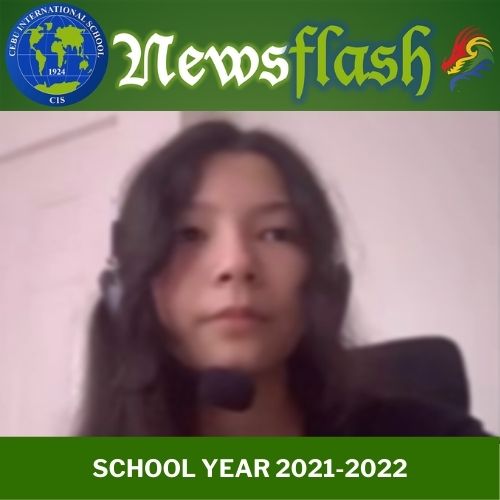
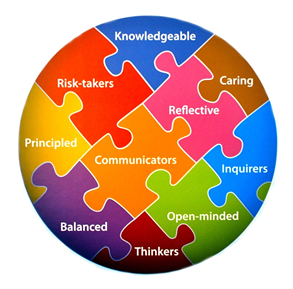 The Learner Profile can be considered the IB Mission Statement “in practice”. It:
The Learner Profile can be considered the IB Mission Statement “in practice”. It: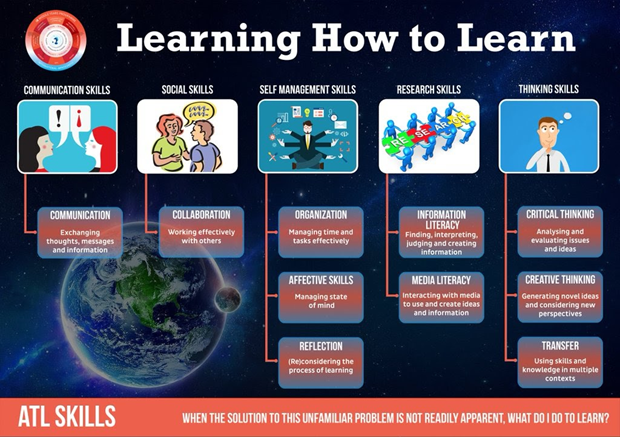
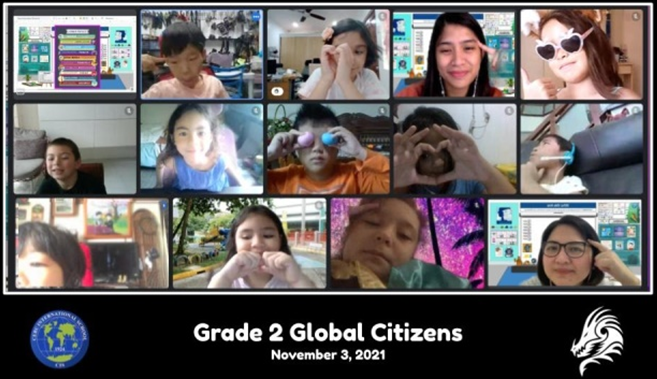 The Grade 2 Global citizens have been inquiring into how multiple perspectives help global citizens respect similarities and differences. Last week, they engaged in a meaningful collaborative discussion about what it means to be a global citizen and internationally-minded. They realized that for an internationally-minded person to be a global citizen, one must be an
The Grade 2 Global citizens have been inquiring into how multiple perspectives help global citizens respect similarities and differences. Last week, they engaged in a meaningful collaborative discussion about what it means to be a global citizen and internationally-minded. They realized that for an internationally-minded person to be a global citizen, one must be an 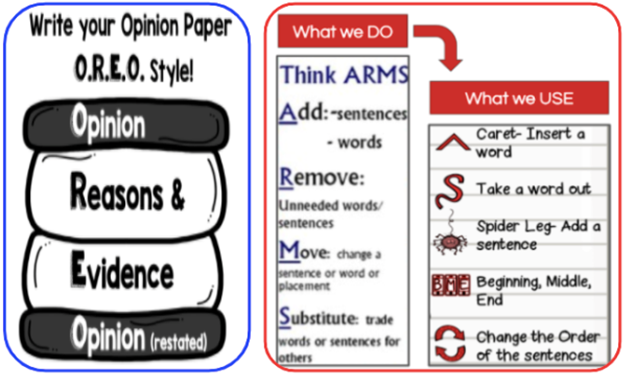 the O.R.E.O. (Opinion, Reason, Evidence, Opinion restated) as a guide to organize their opinion pieces. Then, they looked at how they can improve their writing using A.R.M.S. (Add, Revise, Move, Substitute) to revise. We saw how our Grade 2 Writers revised and improved their writing pieces by responding and applying the feedback given by their teachers and classmates.
the O.R.E.O. (Opinion, Reason, Evidence, Opinion restated) as a guide to organize their opinion pieces. Then, they looked at how they can improve their writing using A.R.M.S. (Add, Revise, Move, Substitute) to revise. We saw how our Grade 2 Writers revised and improved their writing pieces by responding and applying the feedback given by their teachers and classmates. 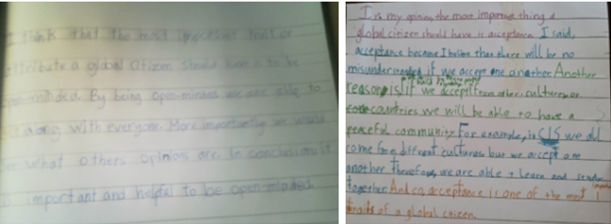
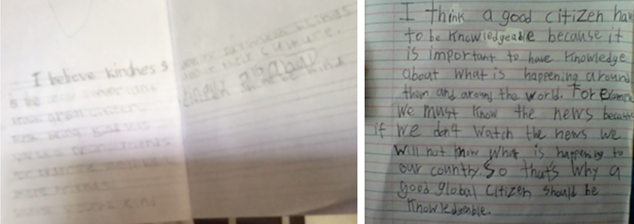
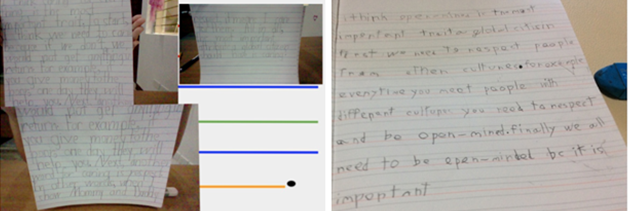
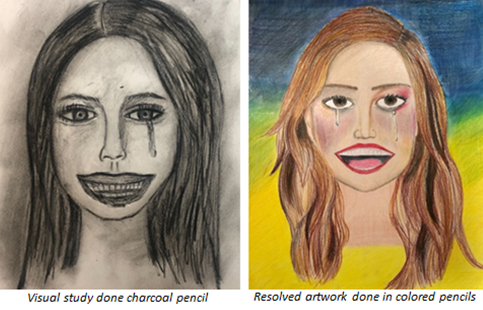 In this first piece of artwork, I especially wanted to focus on human feeling and emotions. This is because it is the type of emotion I know the most and have experienced a lot as a human being. I think happiness and sadness is the most common emotion people feel. People easily get excited and joyful with simple things, but they even get depressed and annoyed as easily as they feel happy. So, to express these two most common human emotions, I used two different facial expressions at once, eyes crying but mouth laughing. The two facial expressions, her mouth smiling and eyes crying shows her confusion in her own feelings and thoughts. – Yoonseo
In this first piece of artwork, I especially wanted to focus on human feeling and emotions. This is because it is the type of emotion I know the most and have experienced a lot as a human being. I think happiness and sadness is the most common emotion people feel. People easily get excited and joyful with simple things, but they even get depressed and annoyed as easily as they feel happy. So, to express these two most common human emotions, I used two different facial expressions at once, eyes crying but mouth laughing. The two facial expressions, her mouth smiling and eyes crying shows her confusion in her own feelings and thoughts. – Yoonseo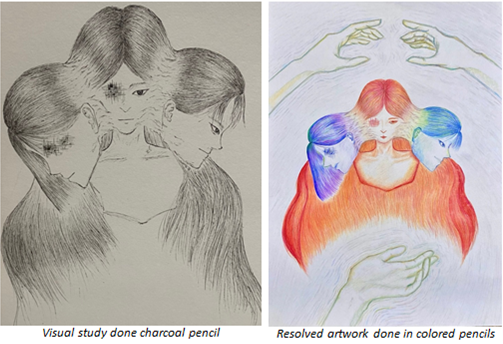 These two sketches are about my appearance, especially related to my hairstyle. When I said that I was going to have a short haircut, there were a lot of contradictions about having short hair and even some gave me bad looks. The message I want to express is that the length of my hair doesn’t change my personality. To represent the social pressure and pressure from surroundings, I decided to add hands on the second sketch. I drew hands to represent the collection of broken pieces from the head to express the stress. – Chewon
These two sketches are about my appearance, especially related to my hairstyle. When I said that I was going to have a short haircut, there were a lot of contradictions about having short hair and even some gave me bad looks. The message I want to express is that the length of my hair doesn’t change my personality. To represent the social pressure and pressure from surroundings, I decided to add hands on the second sketch. I drew hands to represent the collection of broken pieces from the head to express the stress. – Chewon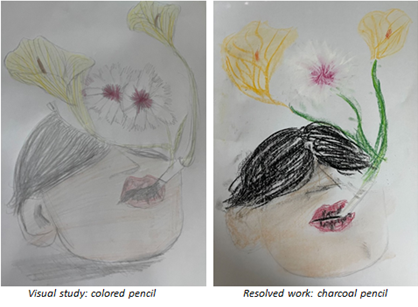
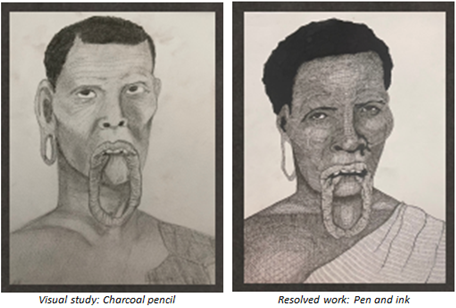
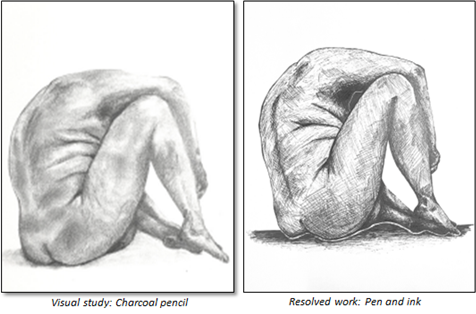
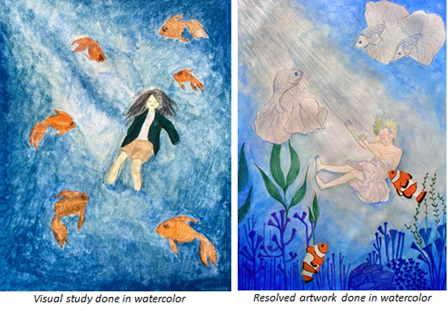
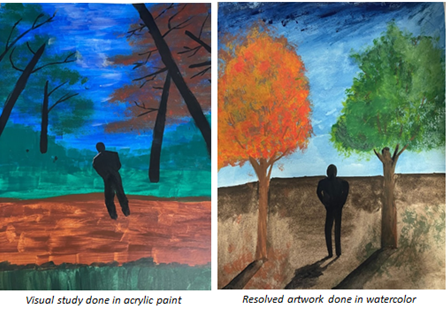
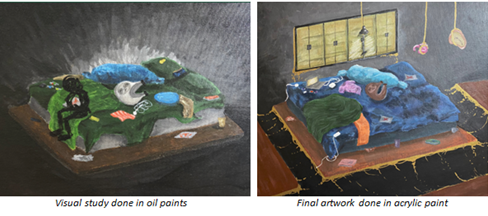
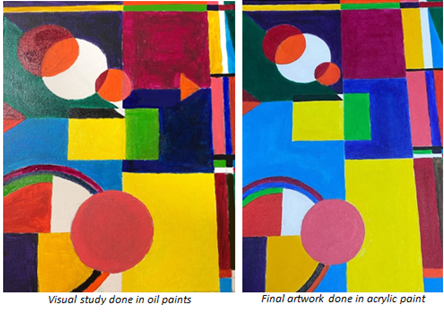
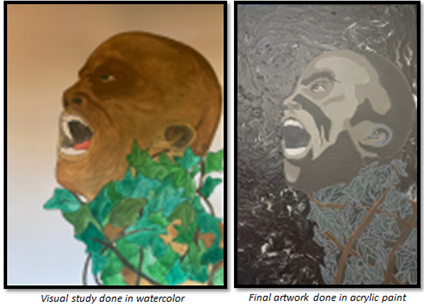

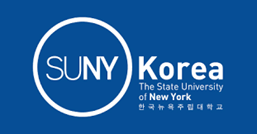
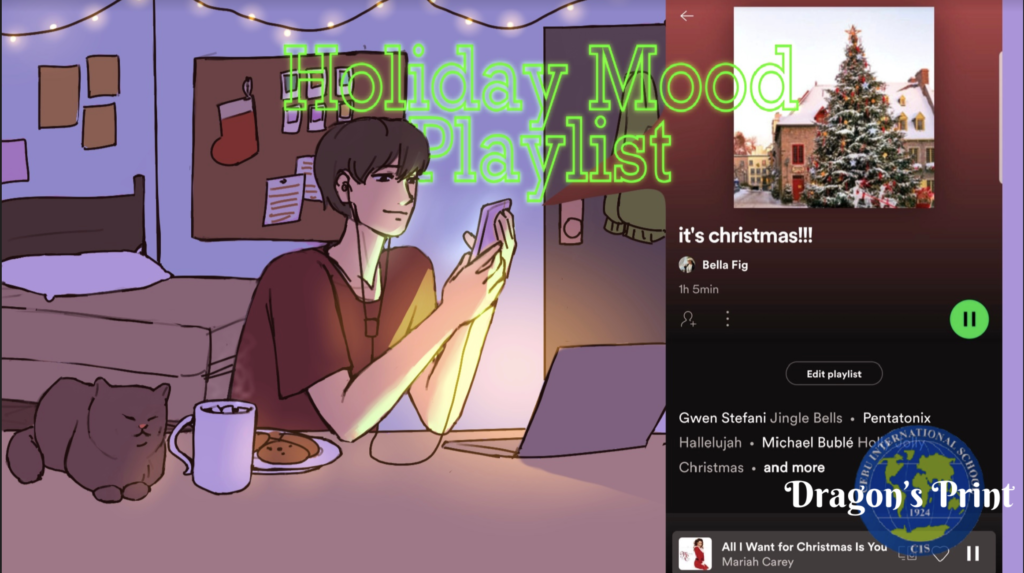
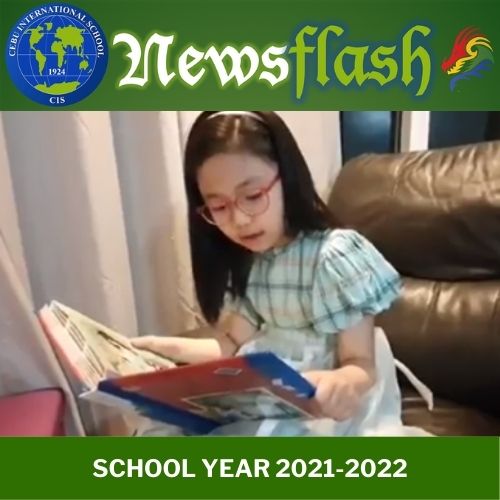
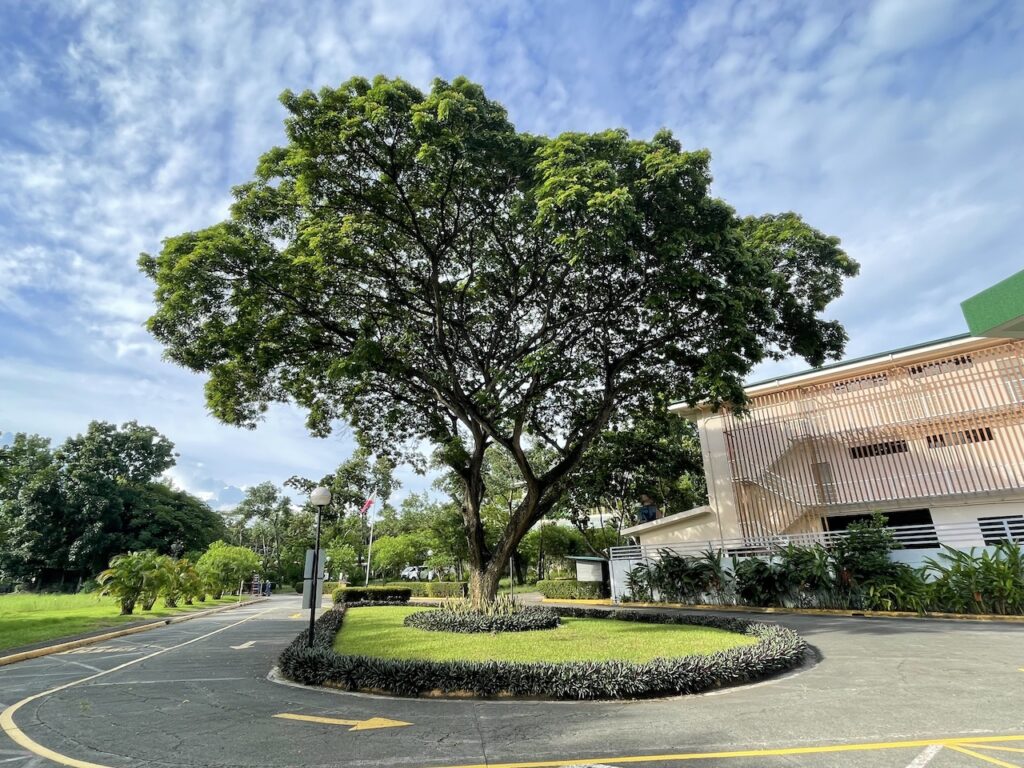
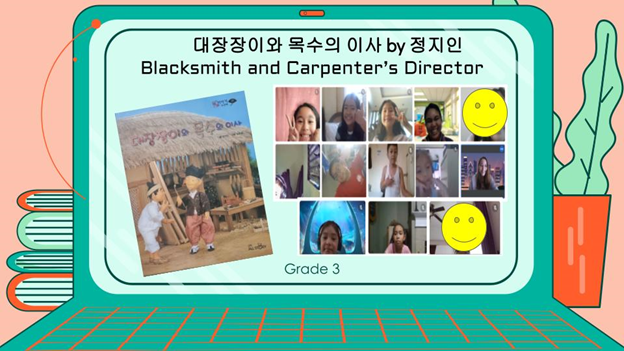 Myths, the Grade 3s nominated the following books:
Myths, the Grade 3s nominated the following books: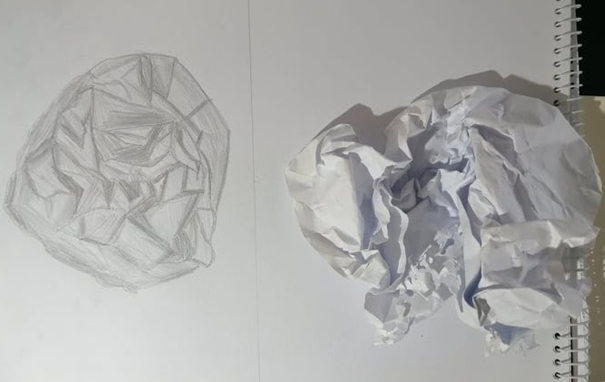
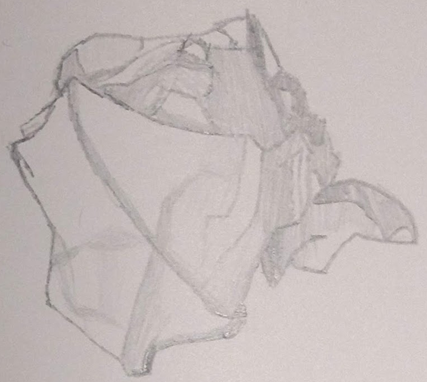
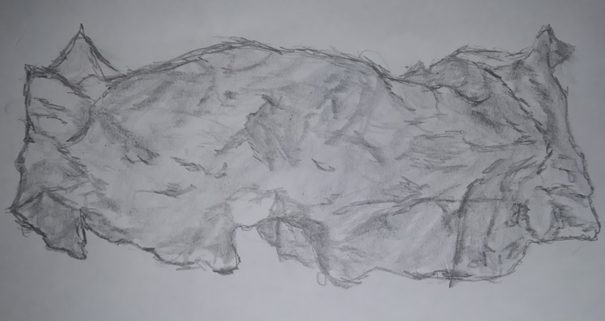
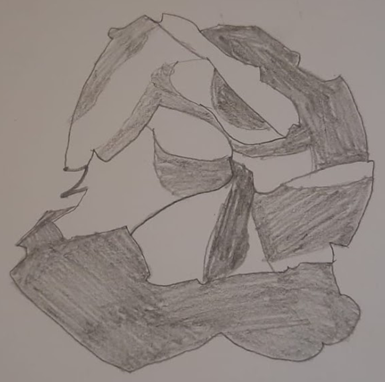
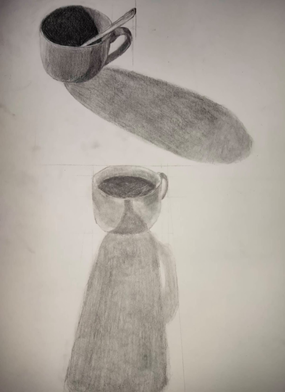
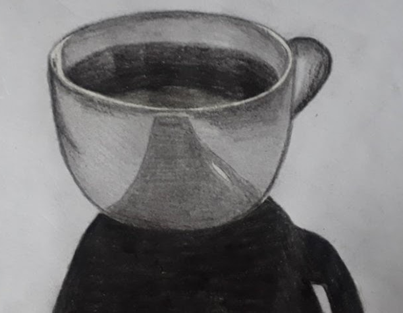
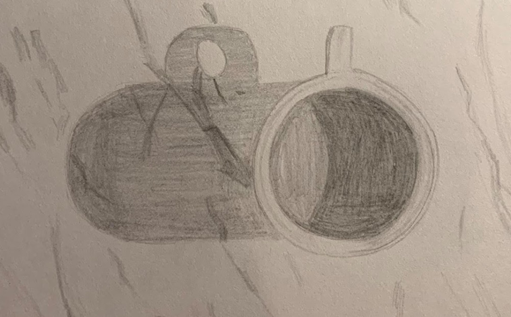
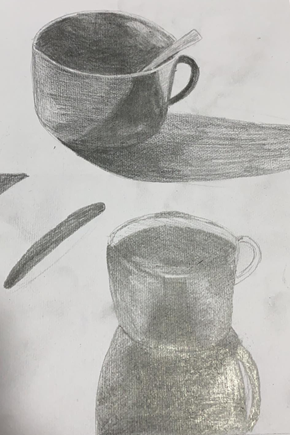
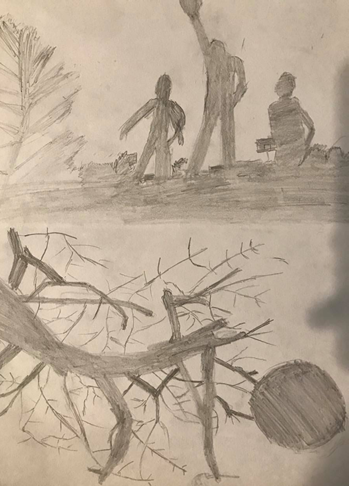

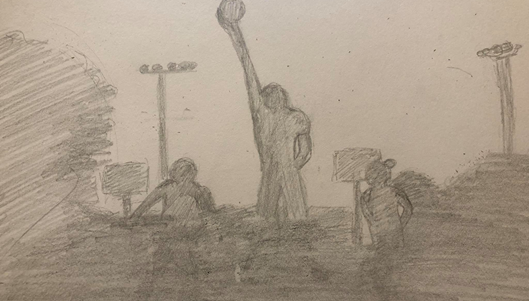
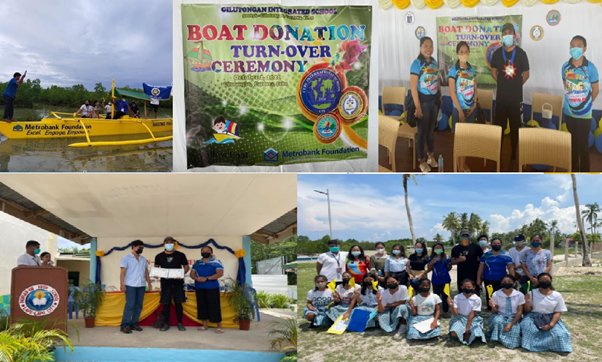 Gilutongan Integrated School received books, a boat, and educational materials while Pangan-an High School received a boat. The books were donated by CIS students through the service learning campaign and initiative we had last June.The boats were made possible through our collaboration with Yellow Boat of Hope Foundation. Aside from these two islands, CIS has been working with Caohagan Elementary School and was able to accomplish significant and sustainable projects in the island for the past years. The boats that were donated were painted by CIS students during our Week Without Walls in February of 2019. The lockdown caused the cancellation of this turn over several times. The schools will use the boat to transport students and teachers from one island to another. This is also very useful for teachers who are distributing the students’ modules, checking on their students from other islands and responding to emergencies.
Gilutongan Integrated School received books, a boat, and educational materials while Pangan-an High School received a boat. The books were donated by CIS students through the service learning campaign and initiative we had last June.The boats were made possible through our collaboration with Yellow Boat of Hope Foundation. Aside from these two islands, CIS has been working with Caohagan Elementary School and was able to accomplish significant and sustainable projects in the island for the past years. The boats that were donated were painted by CIS students during our Week Without Walls in February of 2019. The lockdown caused the cancellation of this turn over several times. The schools will use the boat to transport students and teachers from one island to another. This is also very useful for teachers who are distributing the students’ modules, checking on their students from other islands and responding to emergencies.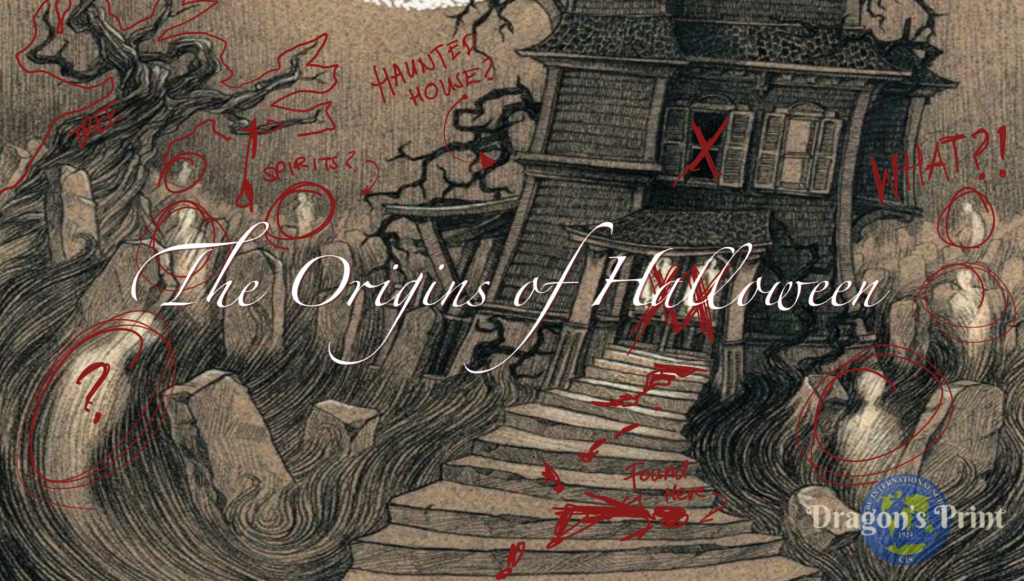
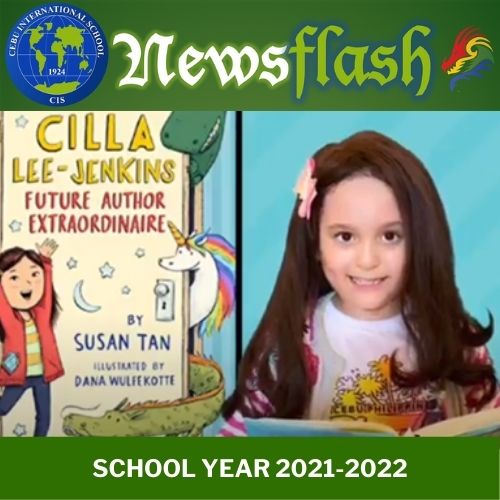
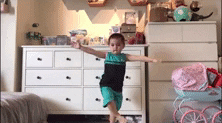
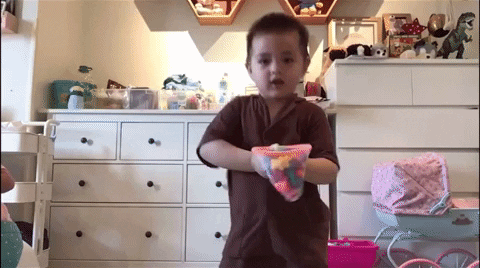
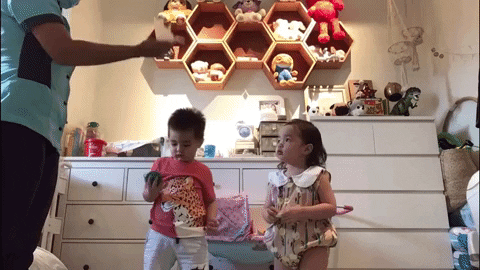
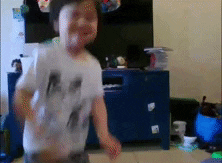
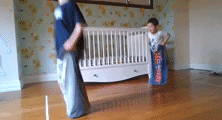
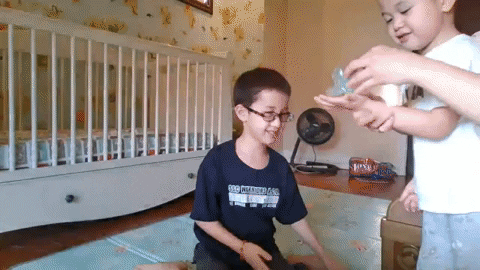
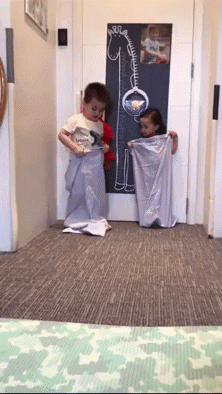
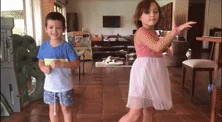
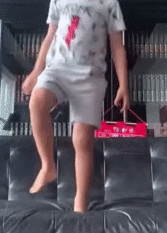
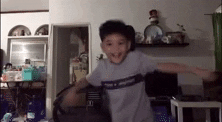
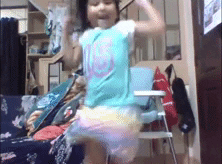
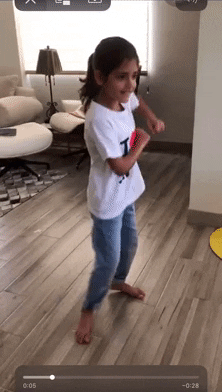
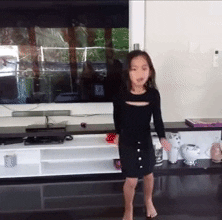
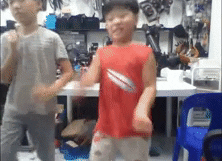
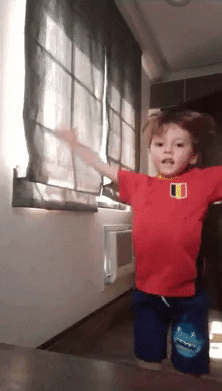
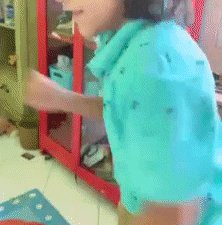
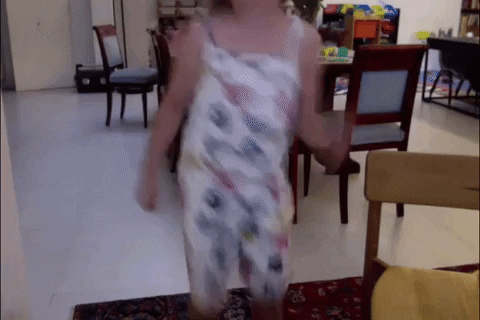
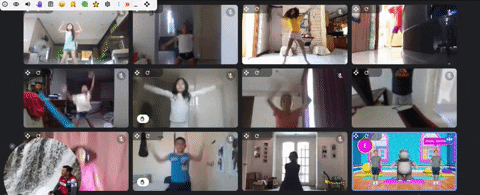
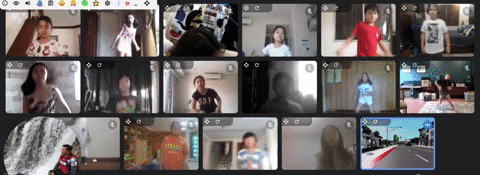
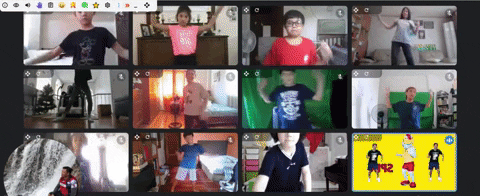
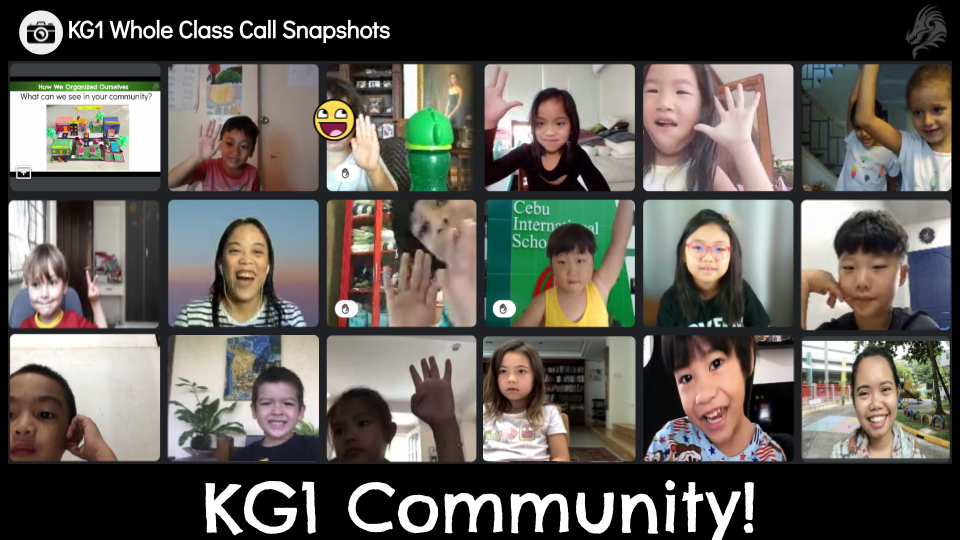
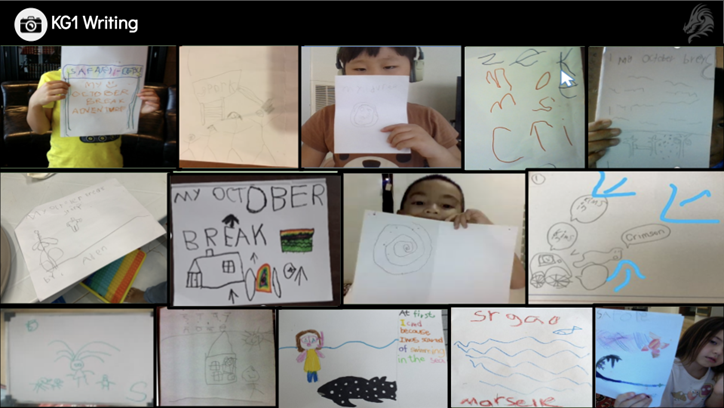
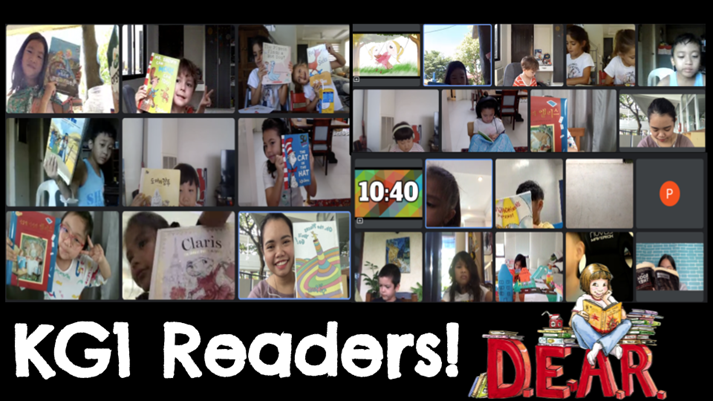
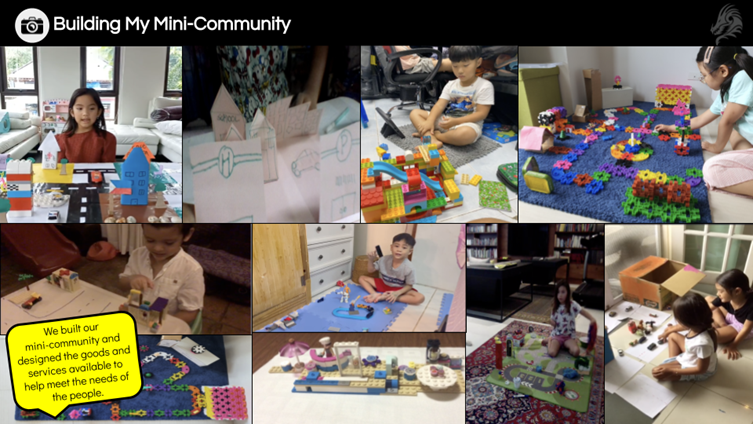
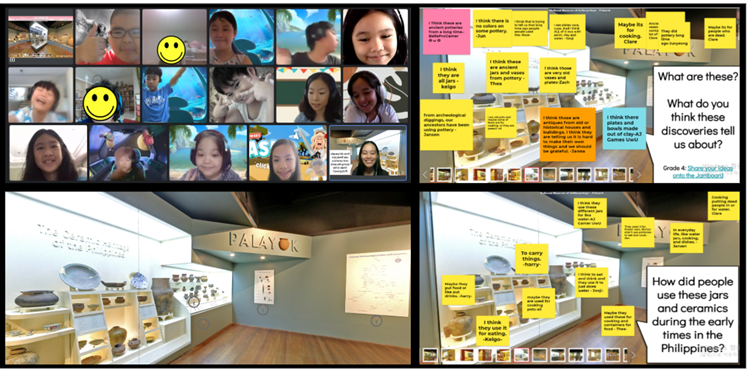
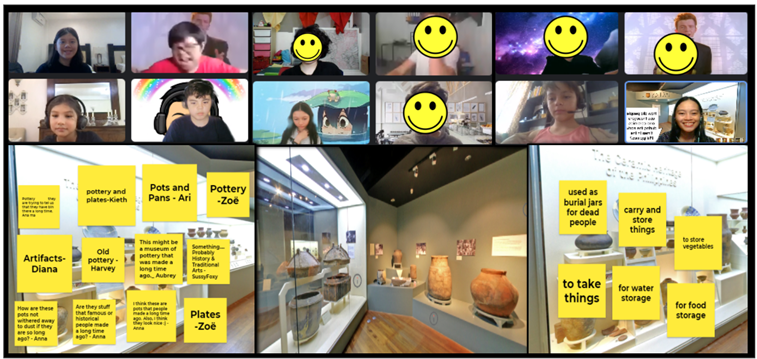
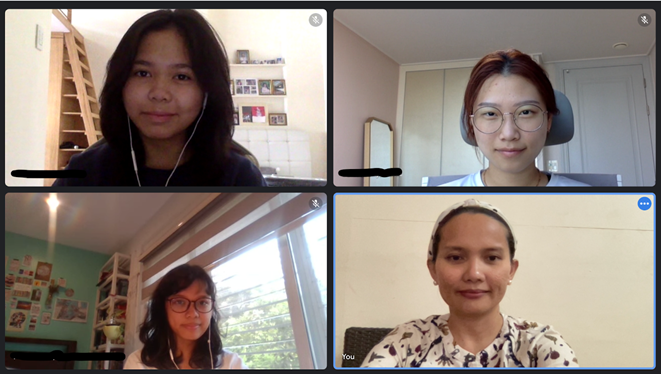 It also allows students to assess the challenges faced by historians in writing a historical investigation and determine the factors that could influence the outcome of their work.
It also allows students to assess the challenges faced by historians in writing a historical investigation and determine the factors that could influence the outcome of their work.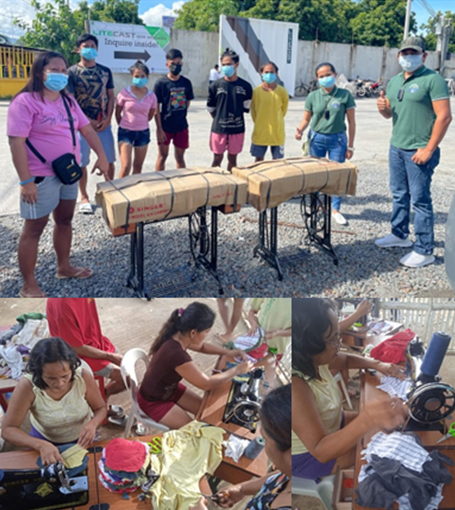 The Grade 11s are taking on a new project: CIS Sewpports and Drop Your Share!
The Grade 11s are taking on a new project: CIS Sewpports and Drop Your Share!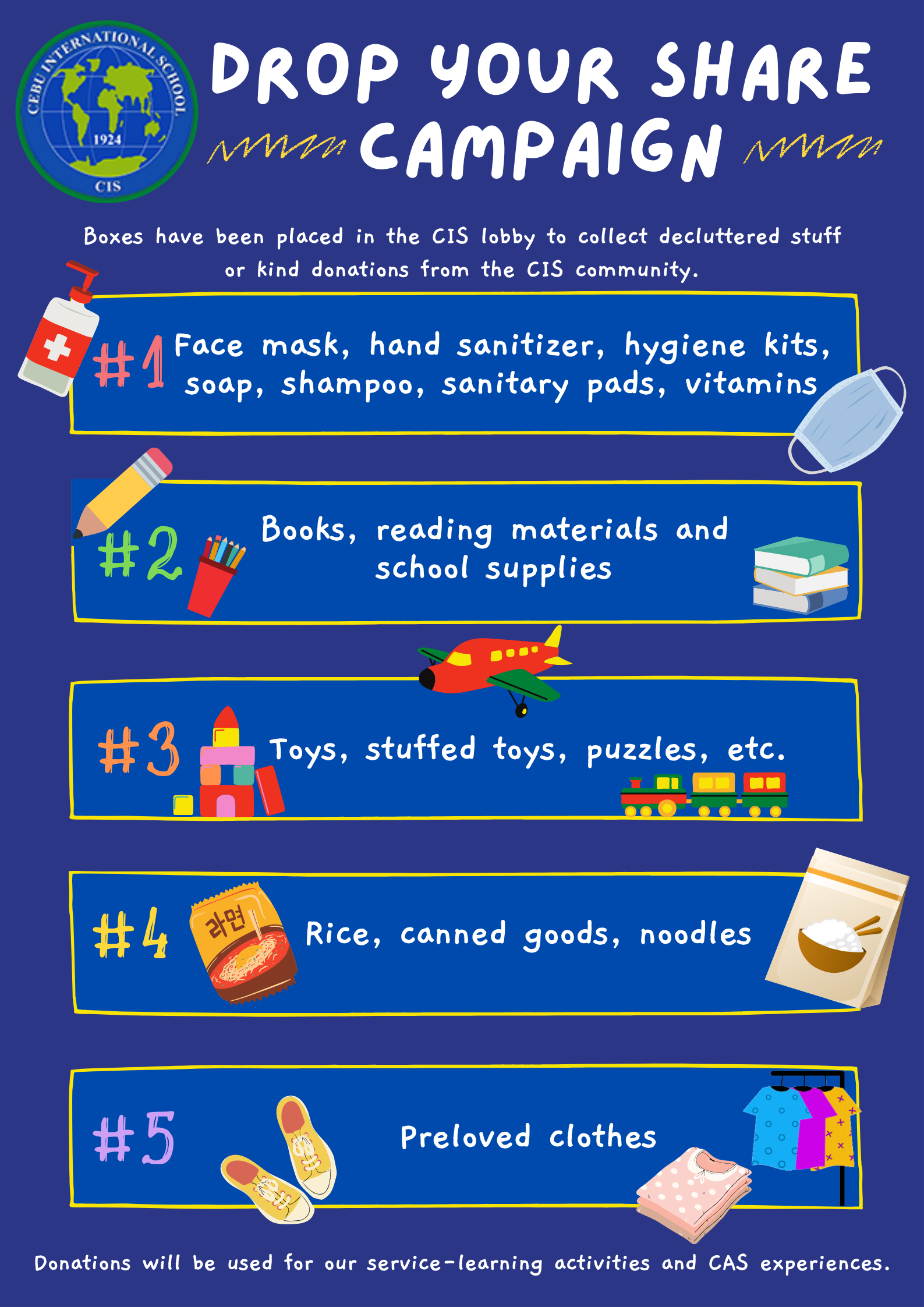
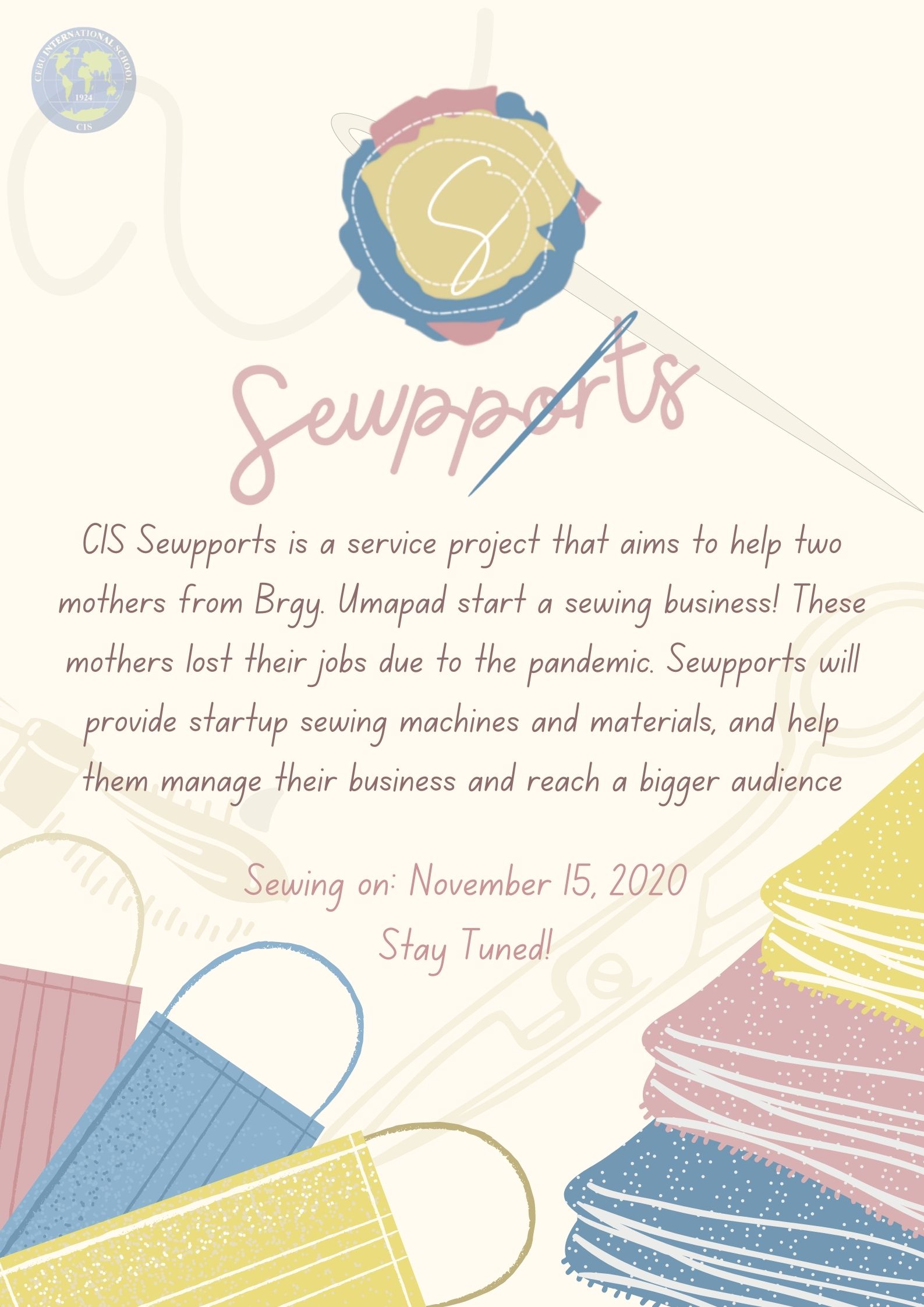
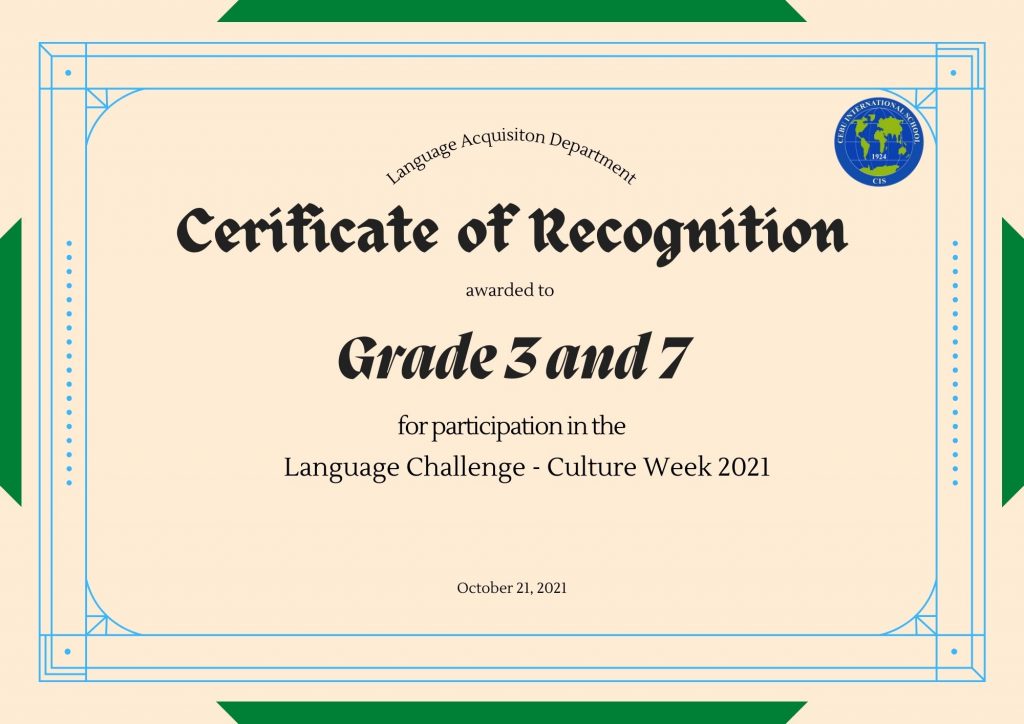
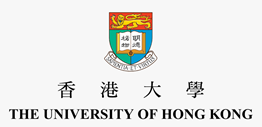
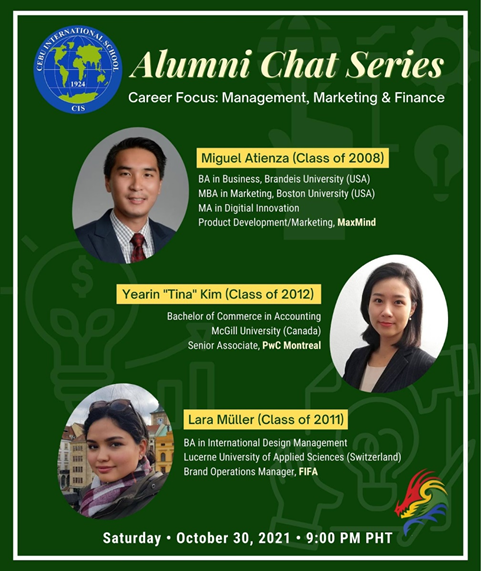

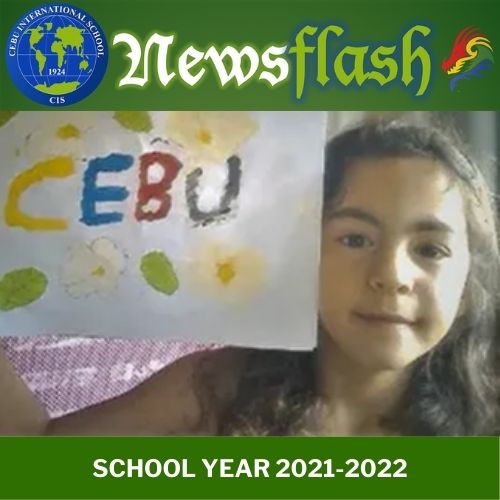
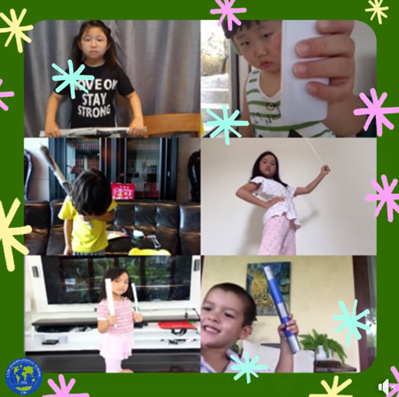
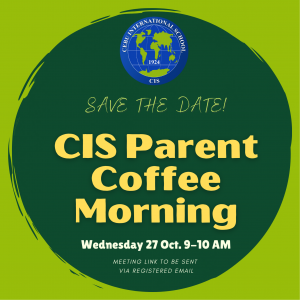
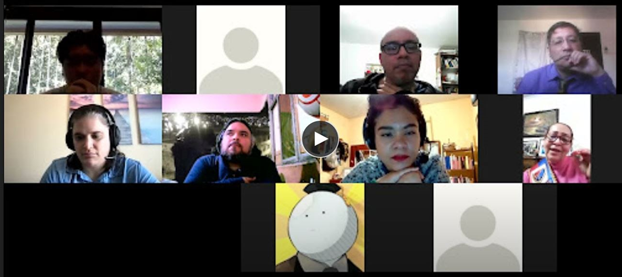 The class hosted four native Spanish speakers that represented diverse areas of the arts world: a design teacher, a prima ballerina senior, a theater director, and a multidisciplinary artist. Each of them contributed to a vivid discussion on the topic and helped our students to grasp the meaning of beauty from their own professional perspectives. It was so refreshing to see the students interacting with professionals and discussing a deep topic in a second or third language. ¡Orgulloso de ustedes, muchachos!
The class hosted four native Spanish speakers that represented diverse areas of the arts world: a design teacher, a prima ballerina senior, a theater director, and a multidisciplinary artist. Each of them contributed to a vivid discussion on the topic and helped our students to grasp the meaning of beauty from their own professional perspectives. It was so refreshing to see the students interacting with professionals and discussing a deep topic in a second or third language. ¡Orgulloso de ustedes, muchachos!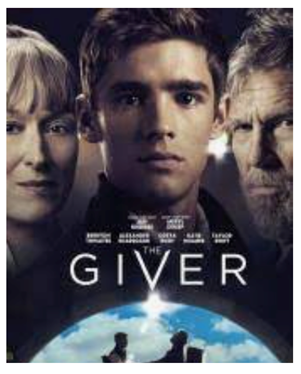 In Grade 6 and 7, we are looking at “The Giver” by Lois Lowry and making connections to our previous unit “How Do You Pass The Time?” When thinking of the central idea (“
In Grade 6 and 7, we are looking at “The Giver” by Lois Lowry and making connections to our previous unit “How Do You Pass The Time?” When thinking of the central idea (“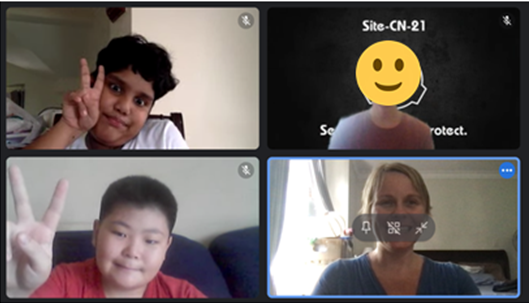 We will also be having virtual penpals from Vietnam to meet with third culture students living there and practice our communication skills! Directly linked to some of our inquiry questions (What is school life like in other countries? What sayings have hidden meanings? How can you understand hidden meanings from words and phrases? Are all students the same around the world?), we will have a chance to make connections with people from other backgrounds.
We will also be having virtual penpals from Vietnam to meet with third culture students living there and practice our communication skills! Directly linked to some of our inquiry questions (What is school life like in other countries? What sayings have hidden meanings? How can you understand hidden meanings from words and phrases? Are all students the same around the world?), we will have a chance to make connections with people from other backgrounds.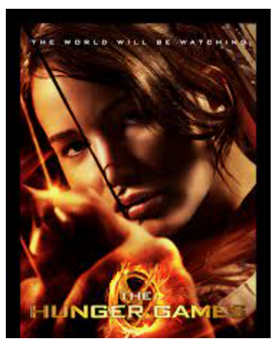 In Grade 8 & Grade 9, our character analysis of characters from “The Hunger Games” linked very closely to our first unit, “How Can I Connect With Others?” Delving into personality traits, analyzing friendships and contemplating if different people can be friends are themes prevalent throughout the novel.
In Grade 8 & Grade 9, our character analysis of characters from “The Hunger Games” linked very closely to our first unit, “How Can I Connect With Others?” Delving into personality traits, analyzing friendships and contemplating if different people can be friends are themes prevalent throughout the novel. 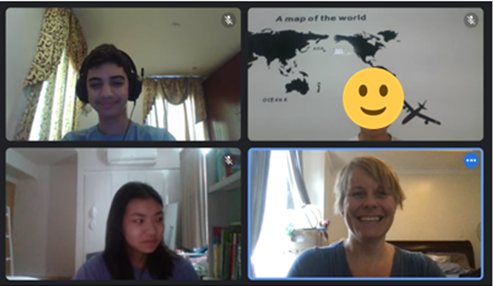 As we begin our new unit, we will keep our statement of inquiry, “Teens around the world have different goals and face different challenges”, in mind as we continue to explore how Katniss, Peeta and the other teenaged characters decide on their goals for survival and react to challenges within the novel.
As we begin our new unit, we will keep our statement of inquiry, “Teens around the world have different goals and face different challenges”, in mind as we continue to explore how Katniss, Peeta and the other teenaged characters decide on their goals for survival and react to challenges within the novel. 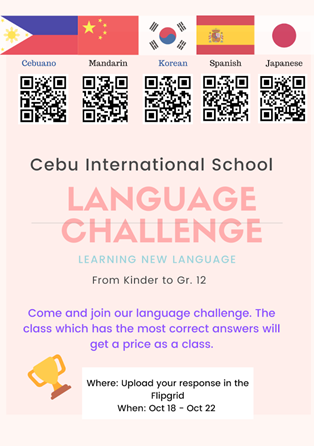
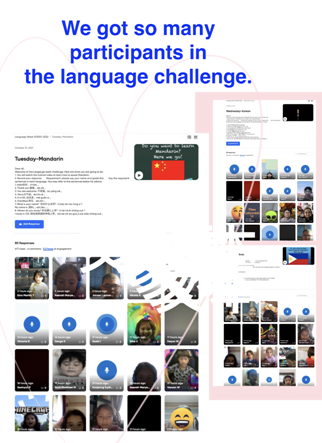
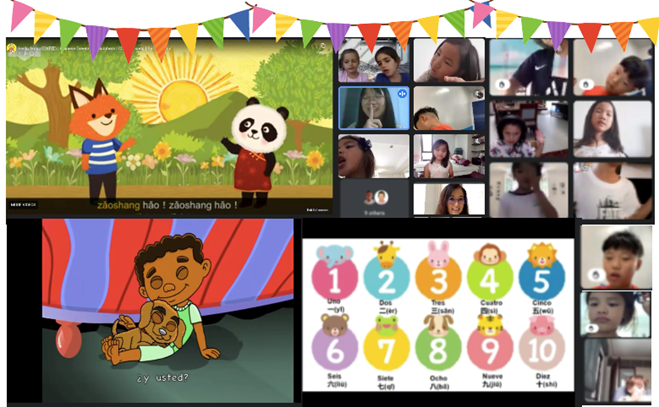
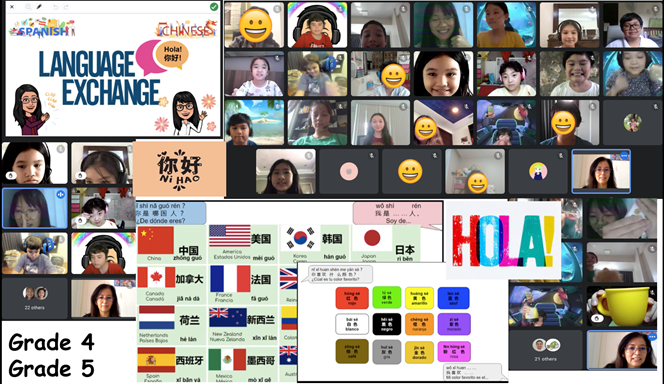
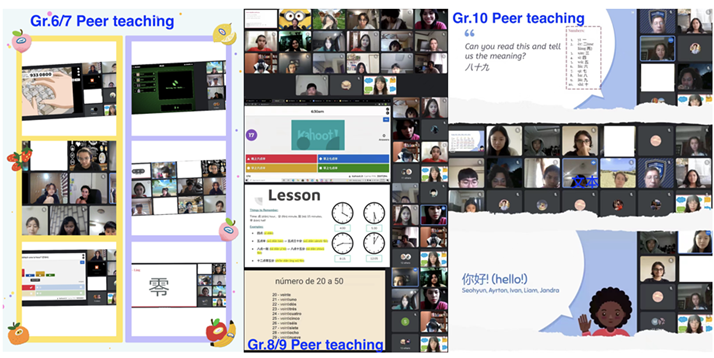

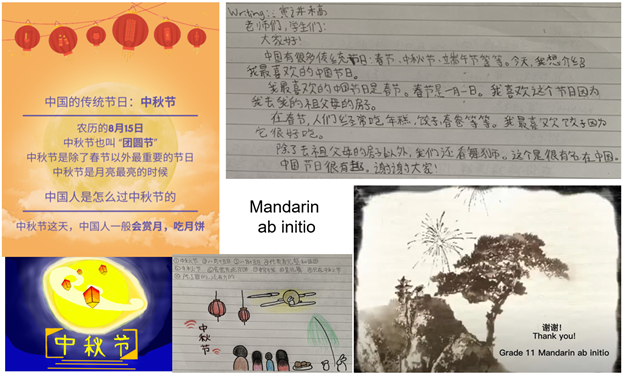
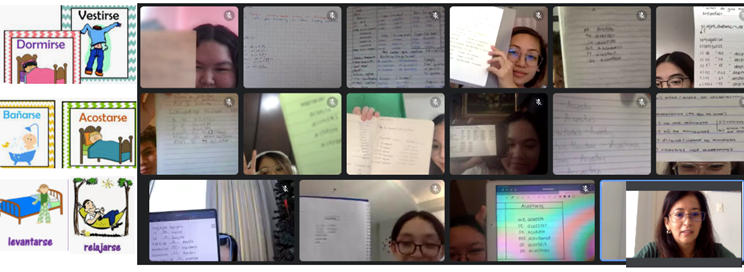
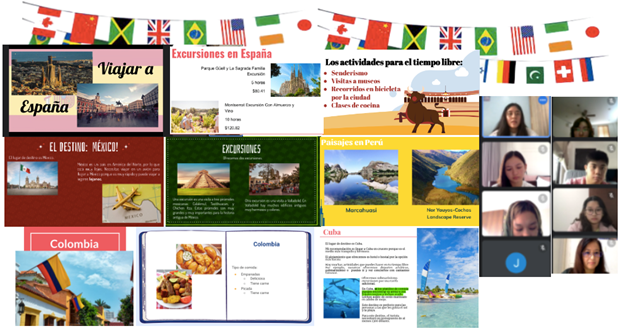
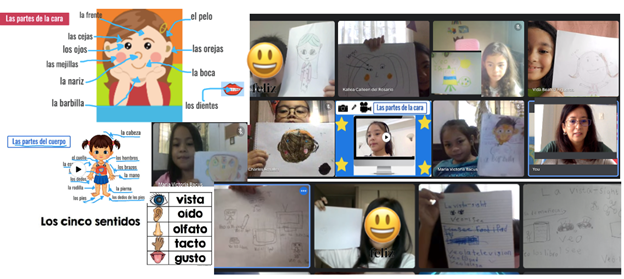
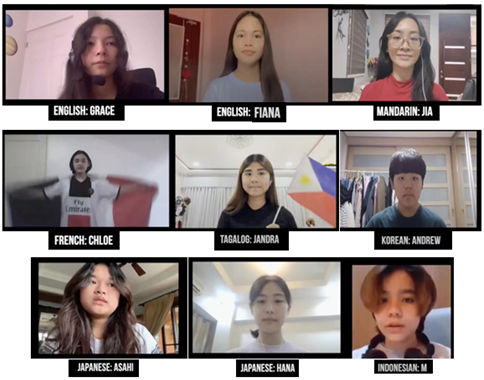
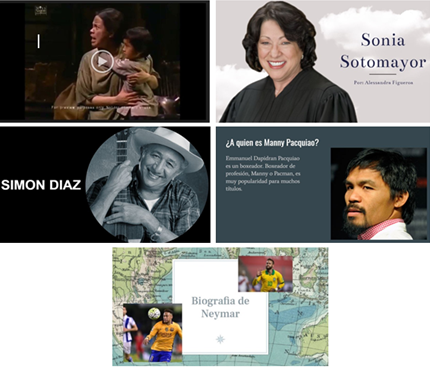
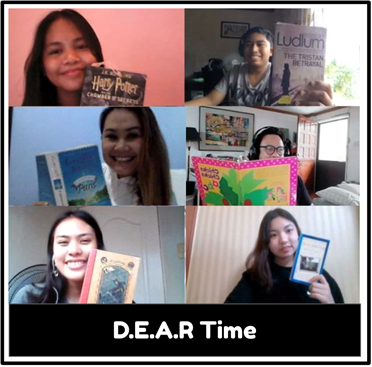
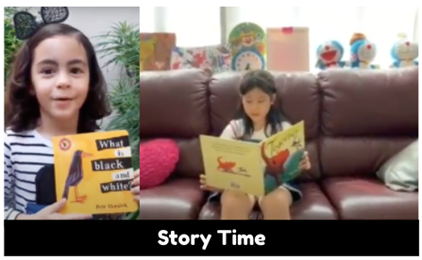
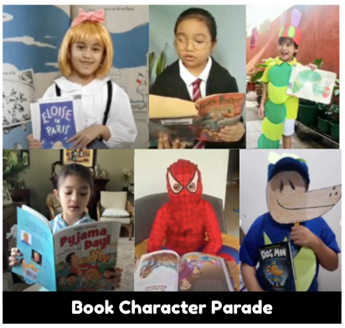
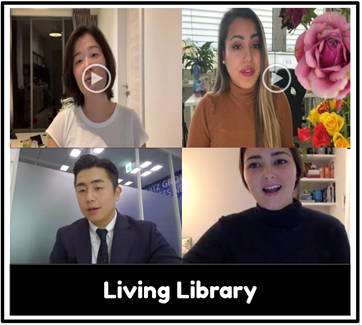

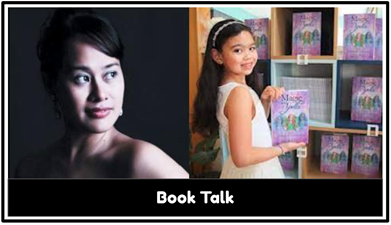
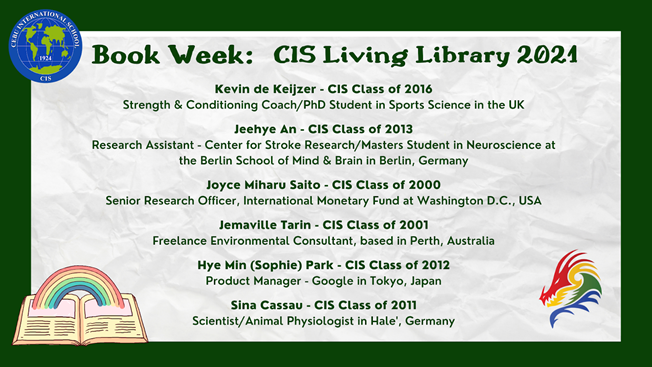
 Northwestern University in Qatar
Northwestern University in Qatar 
 University of Hong Kong
University of Hong Kong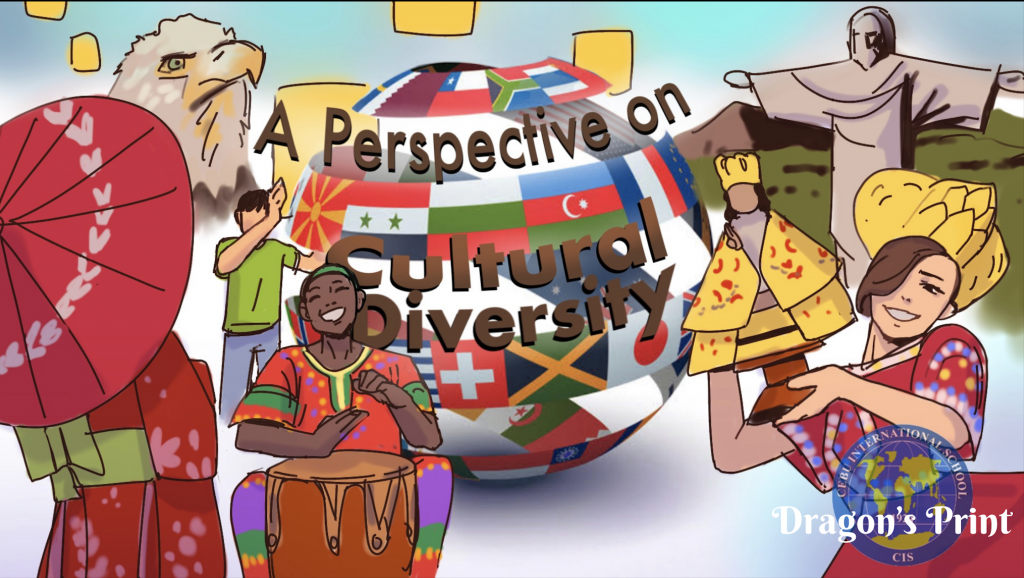 Seven billion people in the world, thousands of languages, and several continents we can simply count with our fingers; yet there is much more in the world to explore! Read more about cultural diversity as Akeisha M. shares her perspective as a new student in CIS on
Seven billion people in the world, thousands of languages, and several continents we can simply count with our fingers; yet there is much more in the world to explore! Read more about cultural diversity as Akeisha M. shares her perspective as a new student in CIS on 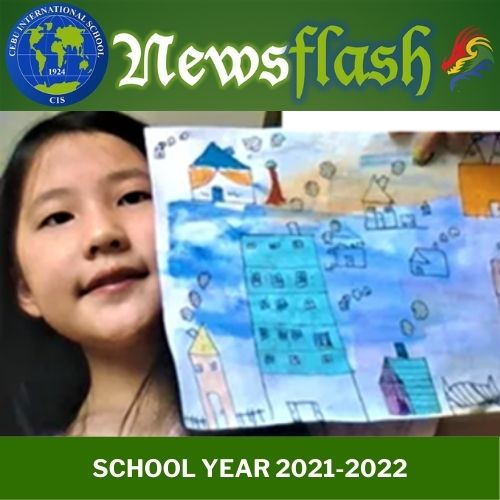
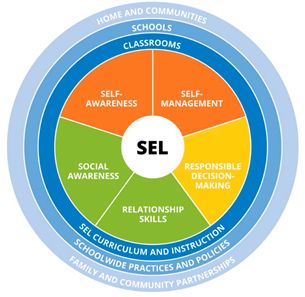 To recap, the “CASEL 5” competencies (refer to CASEL’s SEL diagram) can be “taught and applied at various developmental stages from childhood to adulthood and across diverse cultural contexts to articulate
To recap, the “CASEL 5” competencies (refer to CASEL’s SEL diagram) can be “taught and applied at various developmental stages from childhood to adulthood and across diverse cultural contexts to articulate 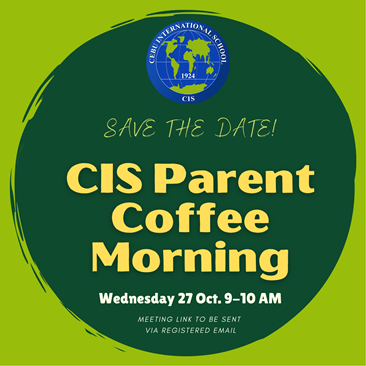
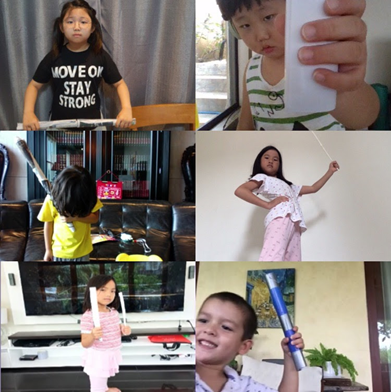
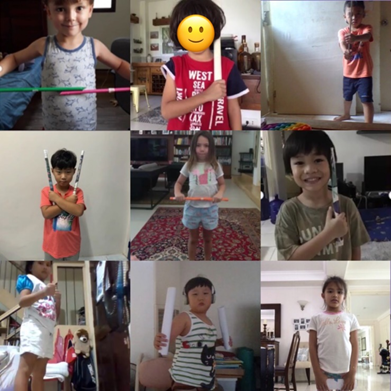
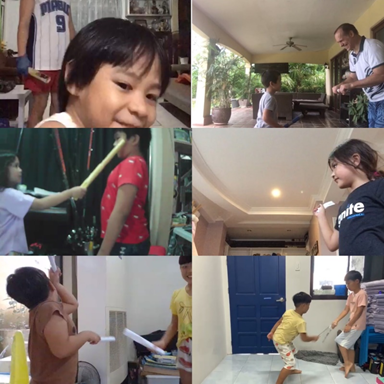
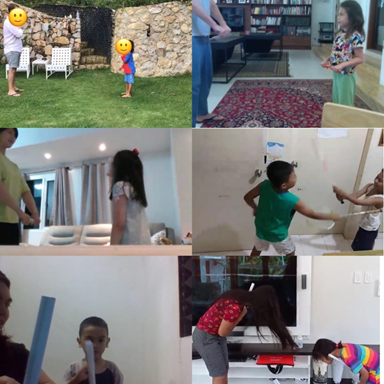
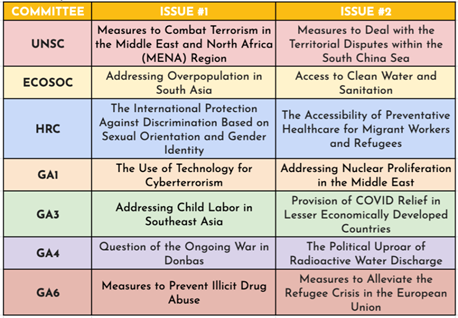 held virtually towards the end of our October Break on October 8 & 9, involving 272 total delegates from nineteen different schools across the Philippines.
held virtually towards the end of our October Break on October 8 & 9, involving 272 total delegates from nineteen different schools across the Philippines.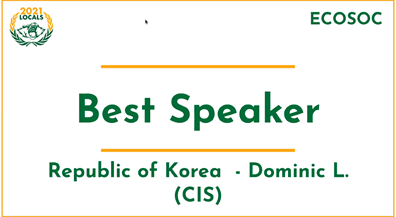 Alessandra F. (G10) was a first time participant and was also selected to be a member of the Press Team, reporting throughout the weekend on the MUN LOCALS Social Media page. And Dominic L. (G12) was selected as Best Speaker for his committee. Well done not only to Alessandra and Dominic, but also to all of the CIS students who did such a great job!!
Alessandra F. (G10) was a first time participant and was also selected to be a member of the Press Team, reporting throughout the weekend on the MUN LOCALS Social Media page. And Dominic L. (G12) was selected as Best Speaker for his committee. Well done not only to Alessandra and Dominic, but also to all of the CIS students who did such a great job!!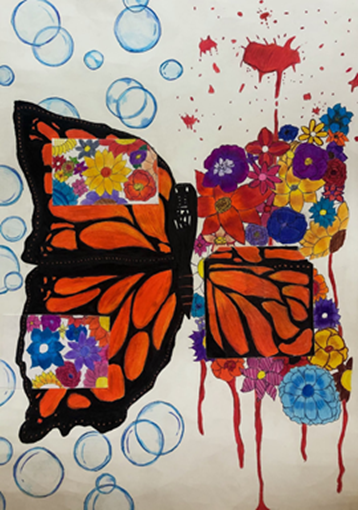
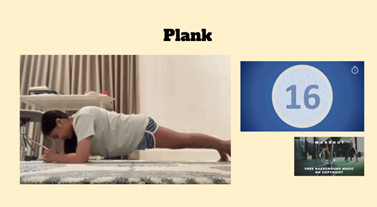
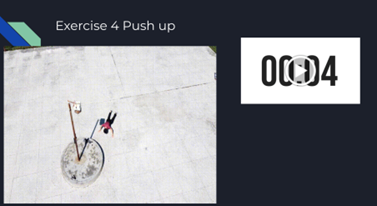
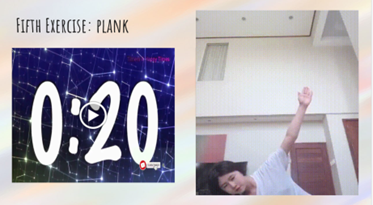
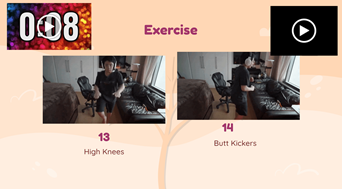
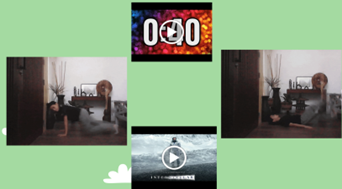

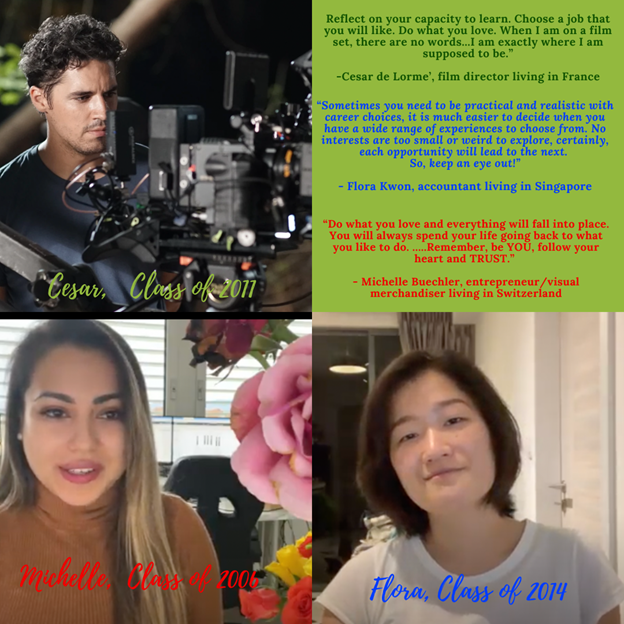
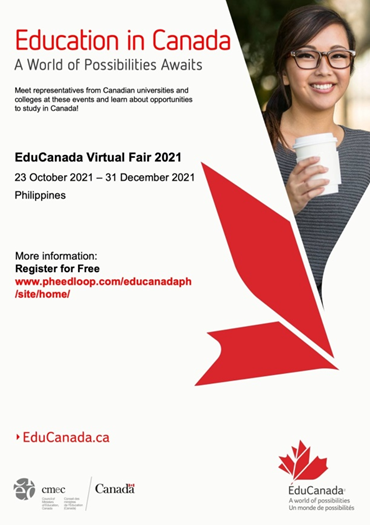
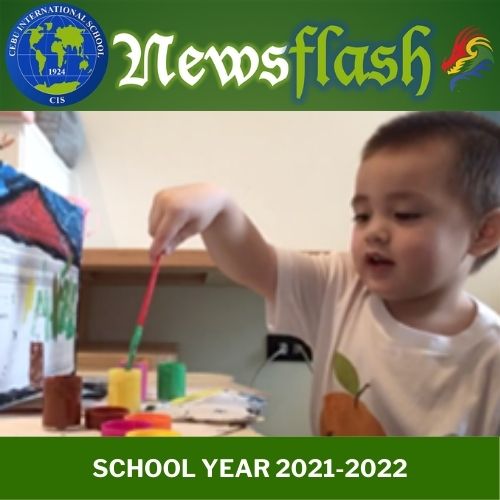
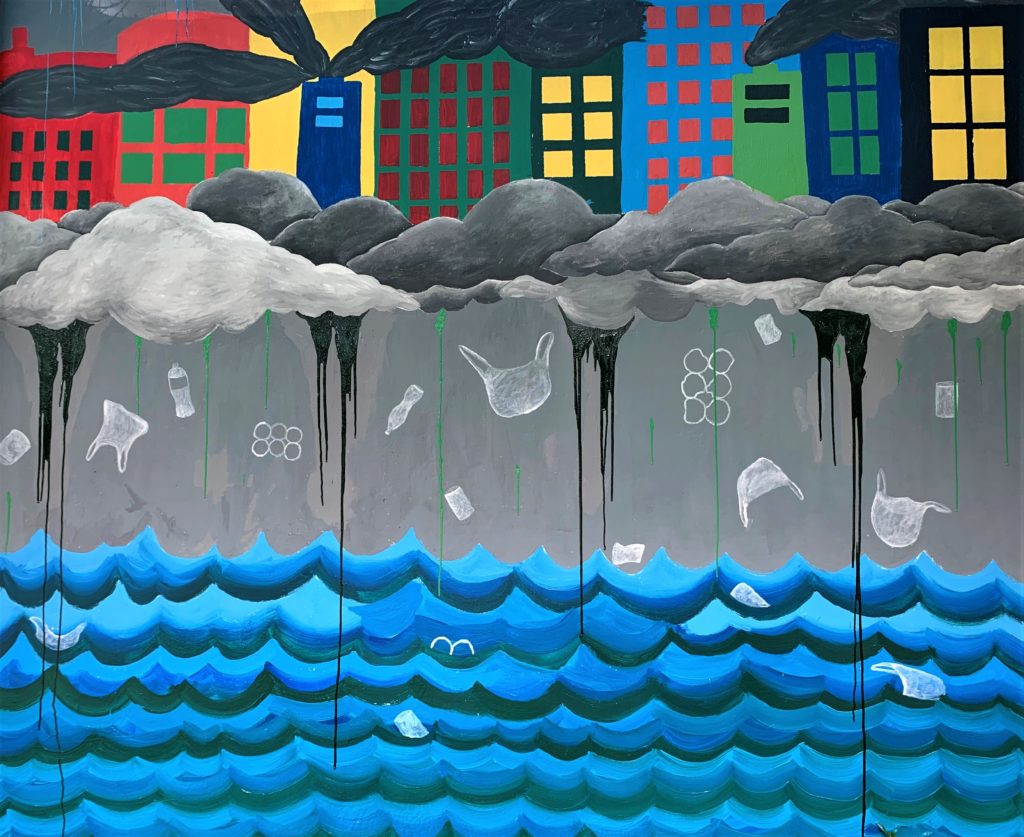
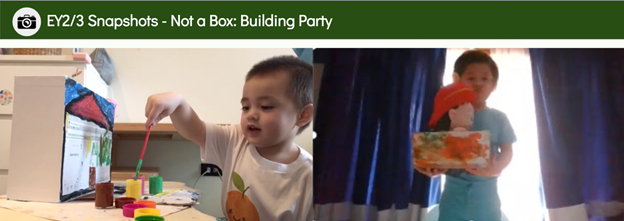 learners have created their own stories from what they have made, and through this, we also developed our communication and thinking skills. We have encouraged them to have characters, the setting, and the plot. With the help of several guiding questions, they were able to narrate their stories.
learners have created their own stories from what they have made, and through this, we also developed our communication and thinking skills. We have encouraged them to have characters, the setting, and the plot. With the help of several guiding questions, they were able to narrate their stories. 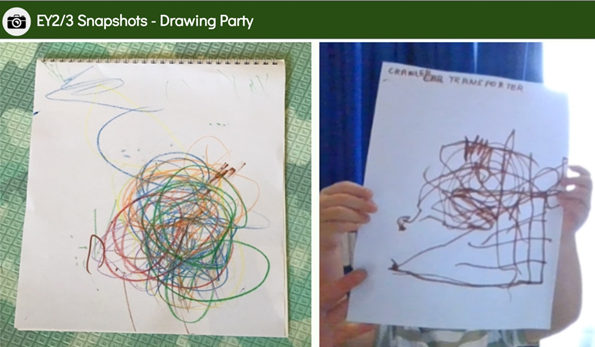
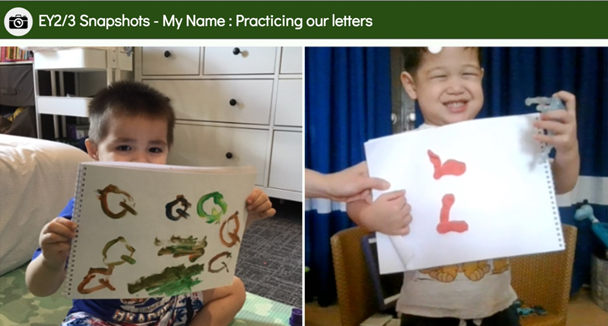
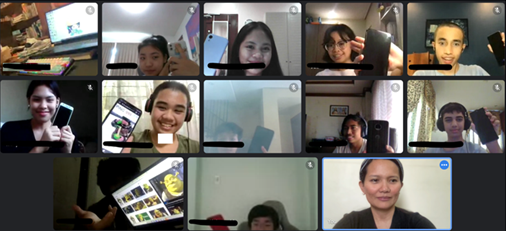
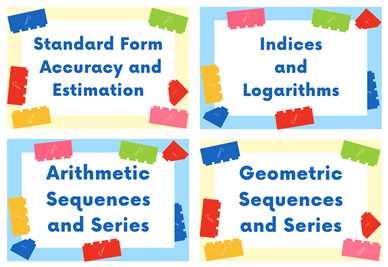 Major conceptual understandings highlighted this quarter are the following:
Major conceptual understandings highlighted this quarter are the following: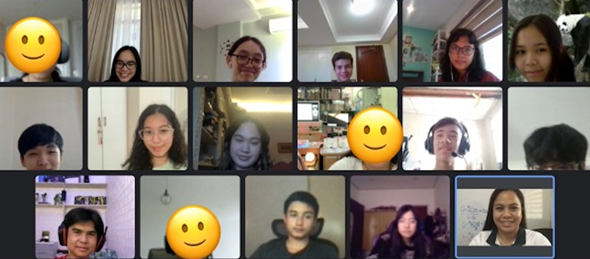 The students who are new to the DP Math AI-SL course completed different explorations, modelling and investigation activities independently and collaboratively. They maximize the use of technology in and out of the classroom to justify their conjectures and explain their reasoning using appropriate mathematical language.
The students who are new to the DP Math AI-SL course completed different explorations, modelling and investigation activities independently and collaboratively. They maximize the use of technology in and out of the classroom to justify their conjectures and explain their reasoning using appropriate mathematical language. 
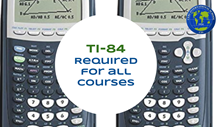
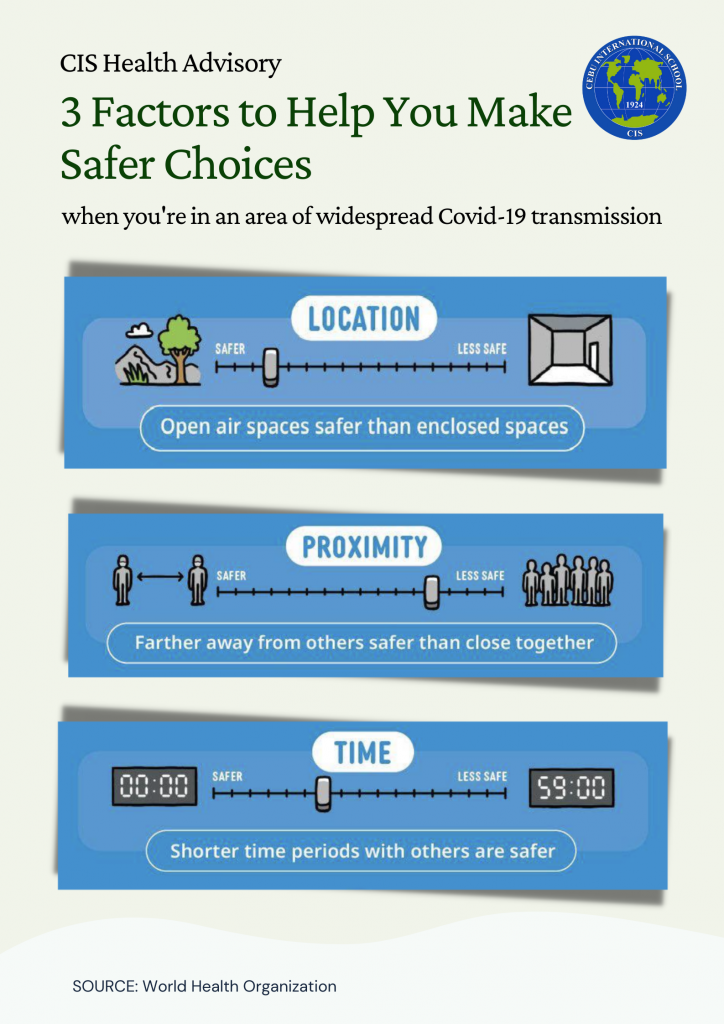
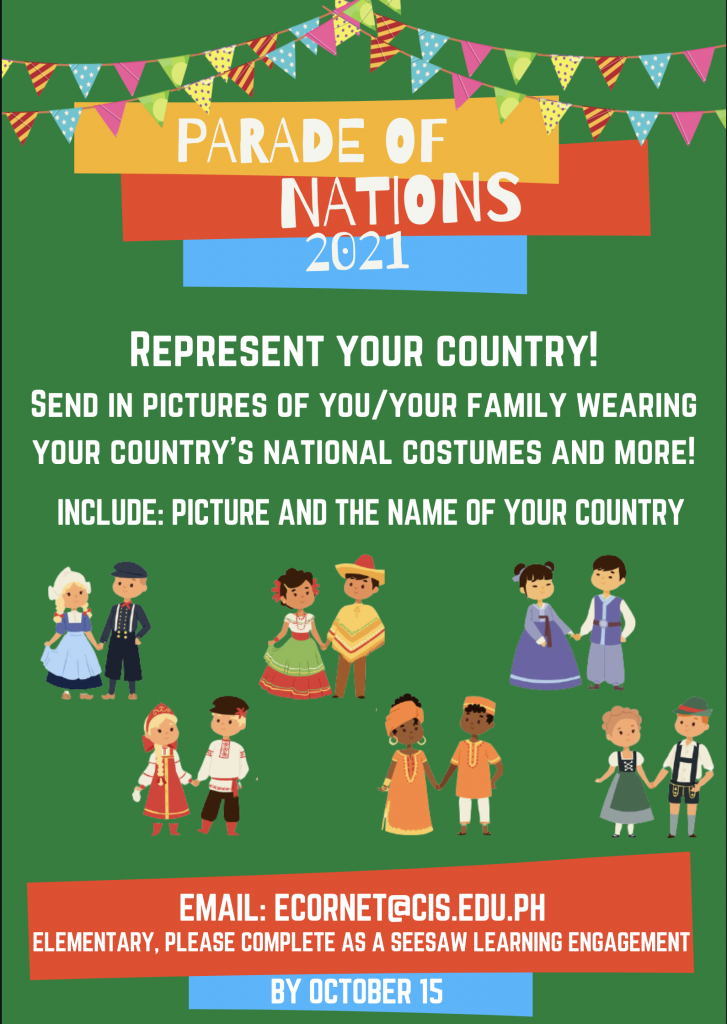



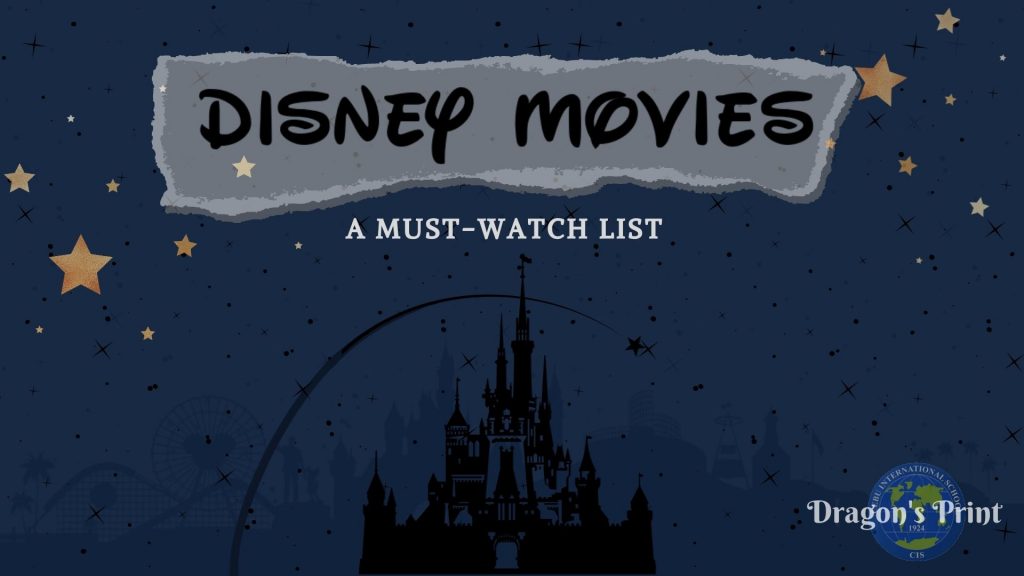
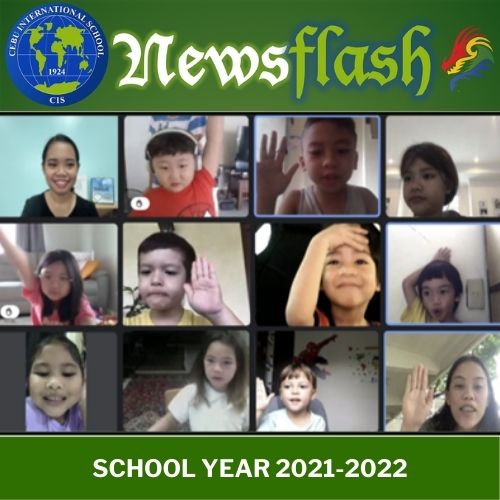
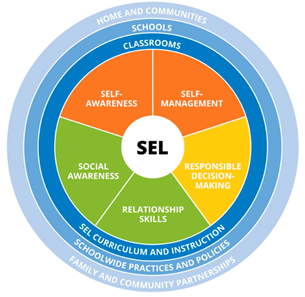 The
The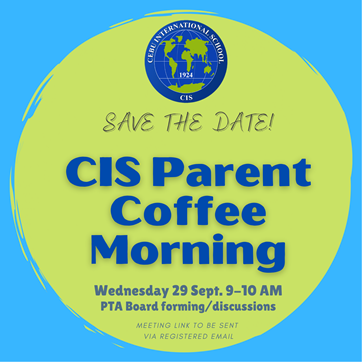
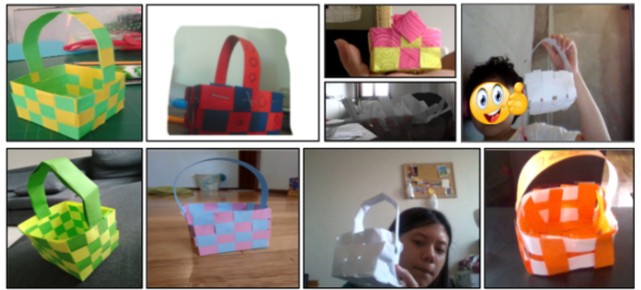
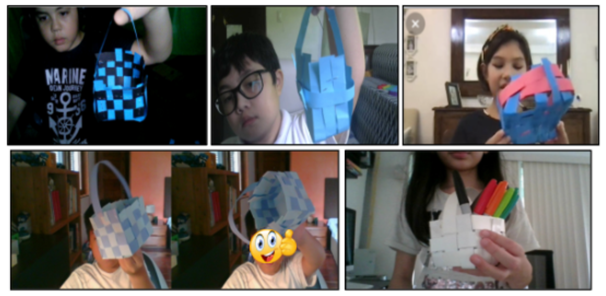
 In our Unit, Who We Are, our KG1 students have been inquiring about how our daily choices and routines help us be balanced and healthy. We identified the four pillars of a balanced and healthy life. These are having a balanced meal, sleep and exercise, hygiene, and a positive attitude.
In our Unit, Who We Are, our KG1 students have been inquiring about how our daily choices and routines help us be balanced and healthy. We identified the four pillars of a balanced and healthy life. These are having a balanced meal, sleep and exercise, hygiene, and a positive attitude. 

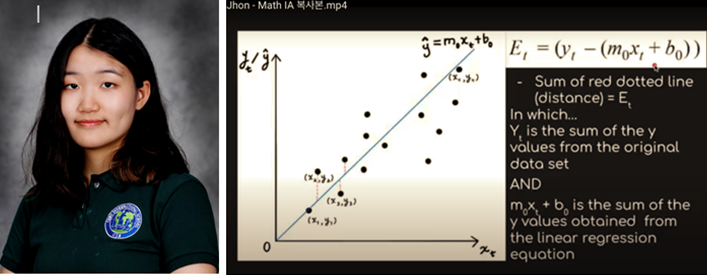
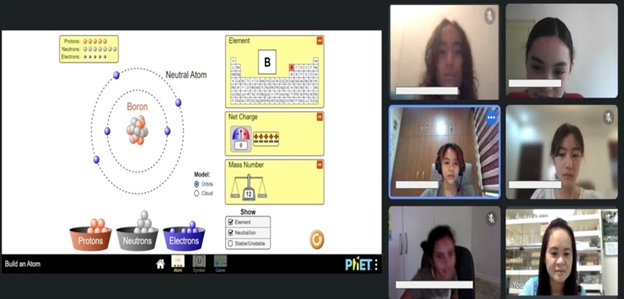
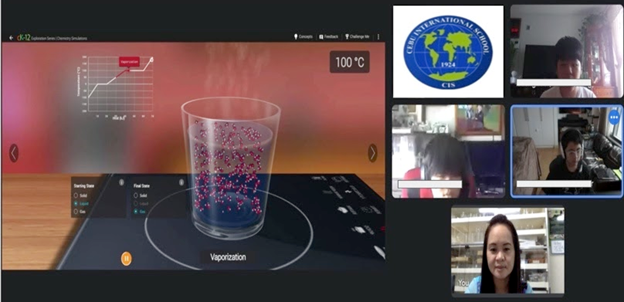
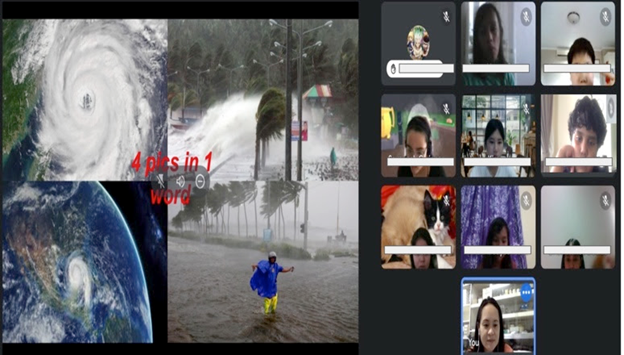 In Knowing how the planet works, the Grade 6 students explored natural calamities that occur on Earth, such as earthquakes, volcanic eruptions, landslides, tsunamis, typhoons, and many others. These are natural occurrences that play a role in shaping the Earth. Understanding these occurrences is a very important part of the mitigation of their adverse effects on humankind. Thus, understanding the Earth’s
In Knowing how the planet works, the Grade 6 students explored natural calamities that occur on Earth, such as earthquakes, volcanic eruptions, landslides, tsunamis, typhoons, and many others. These are natural occurrences that play a role in shaping the Earth. Understanding these occurrences is a very important part of the mitigation of their adverse effects on humankind. Thus, understanding the Earth’s 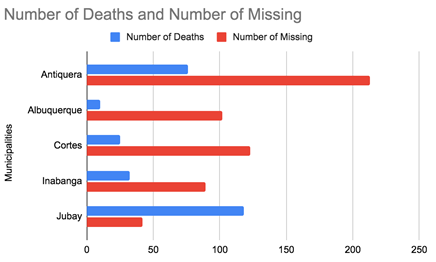
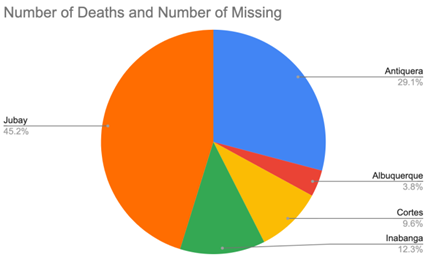
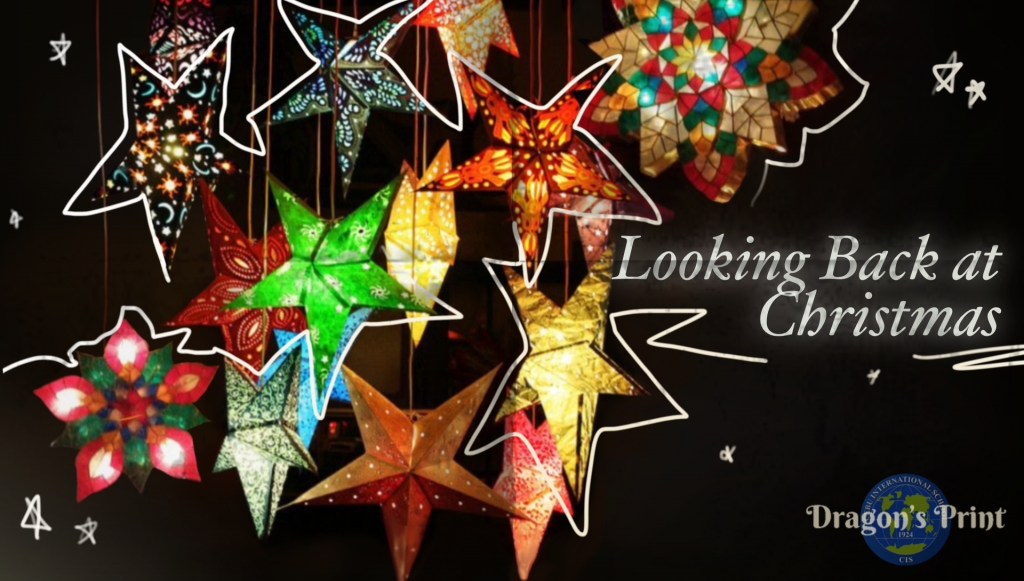



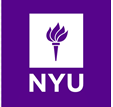


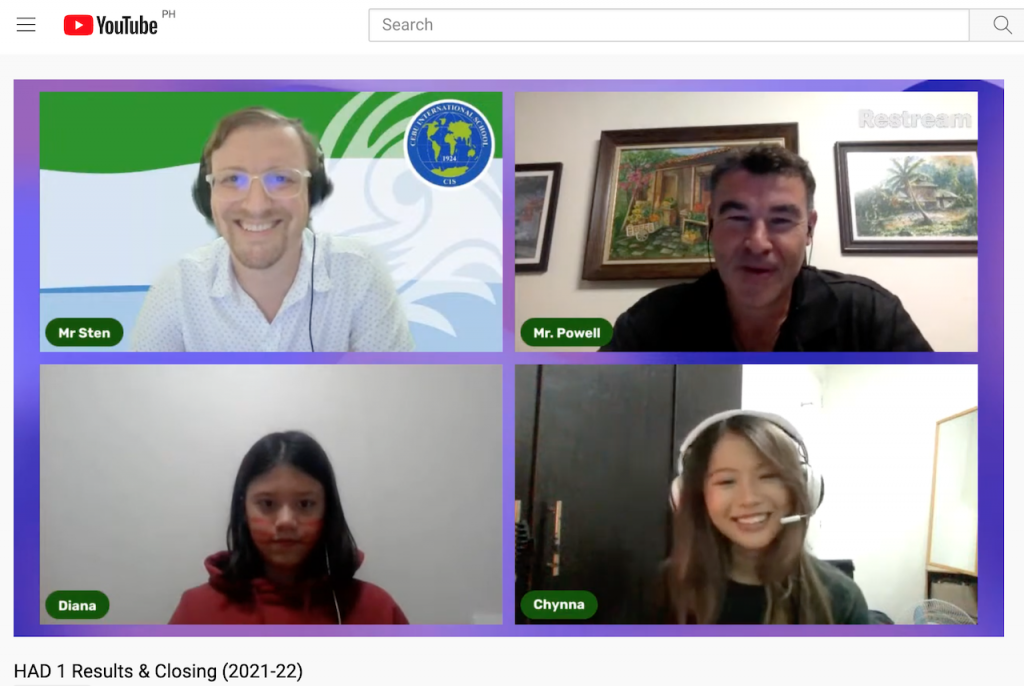
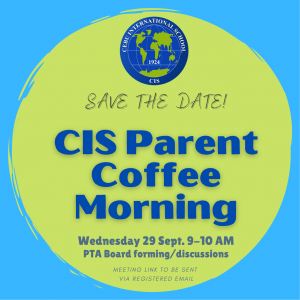
 teachers, introducing the journey that they will take in their classes over the next two years. They were presented videos about where they should be, as Grade 11 students, in their path towards university, as well as videos about the CIS Diploma Programme. Lastly, students and teachers signed a digital version of the banner that we normally hang in the Media Center, showing our shared commitment to making sure that all students will be successful in the first year of the Diploma Programme.
teachers, introducing the journey that they will take in their classes over the next two years. They were presented videos about where they should be, as Grade 11 students, in their path towards university, as well as videos about the CIS Diploma Programme. Lastly, students and teachers signed a digital version of the banner that we normally hang in the Media Center, showing our shared commitment to making sure that all students will be successful in the first year of the Diploma Programme.
